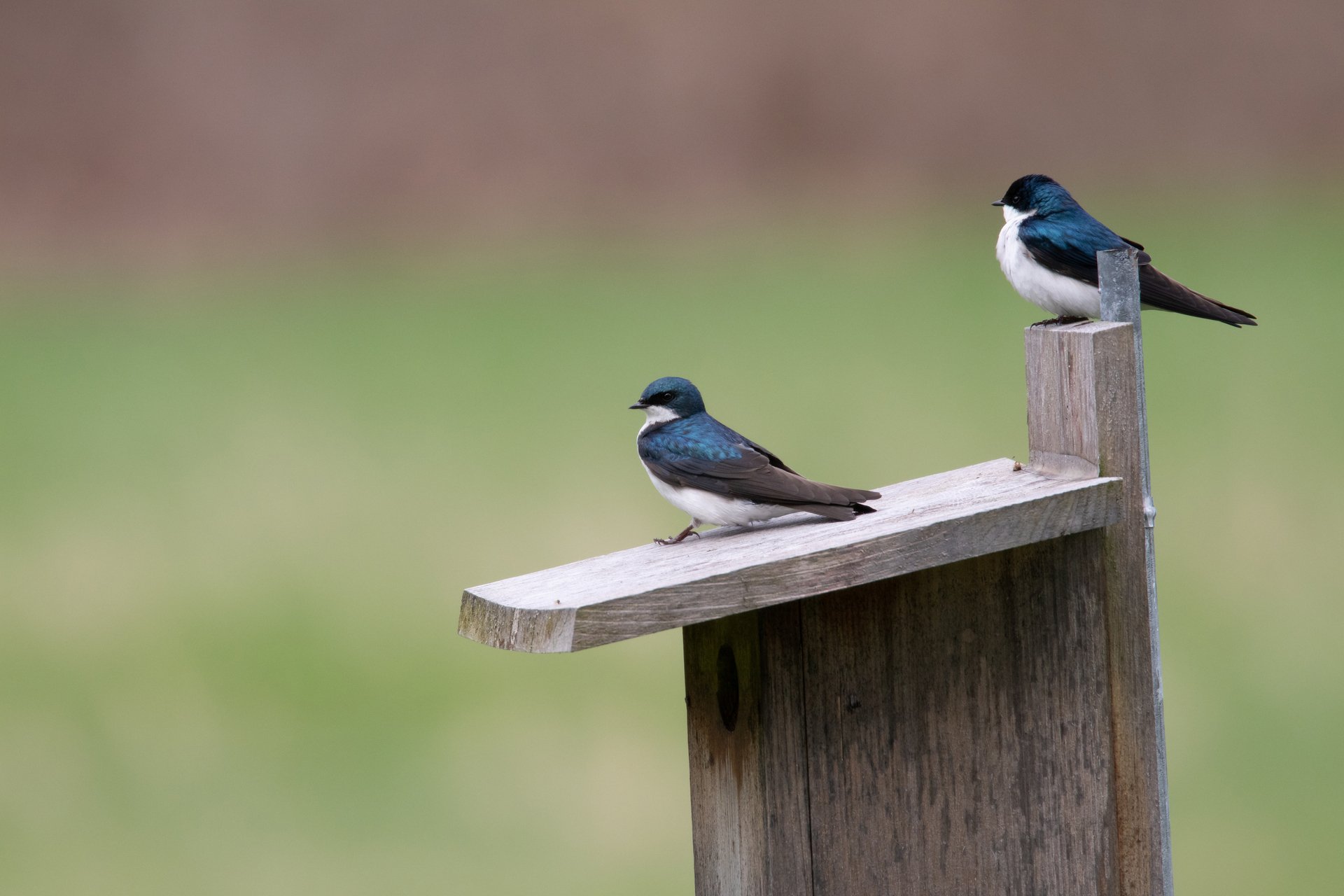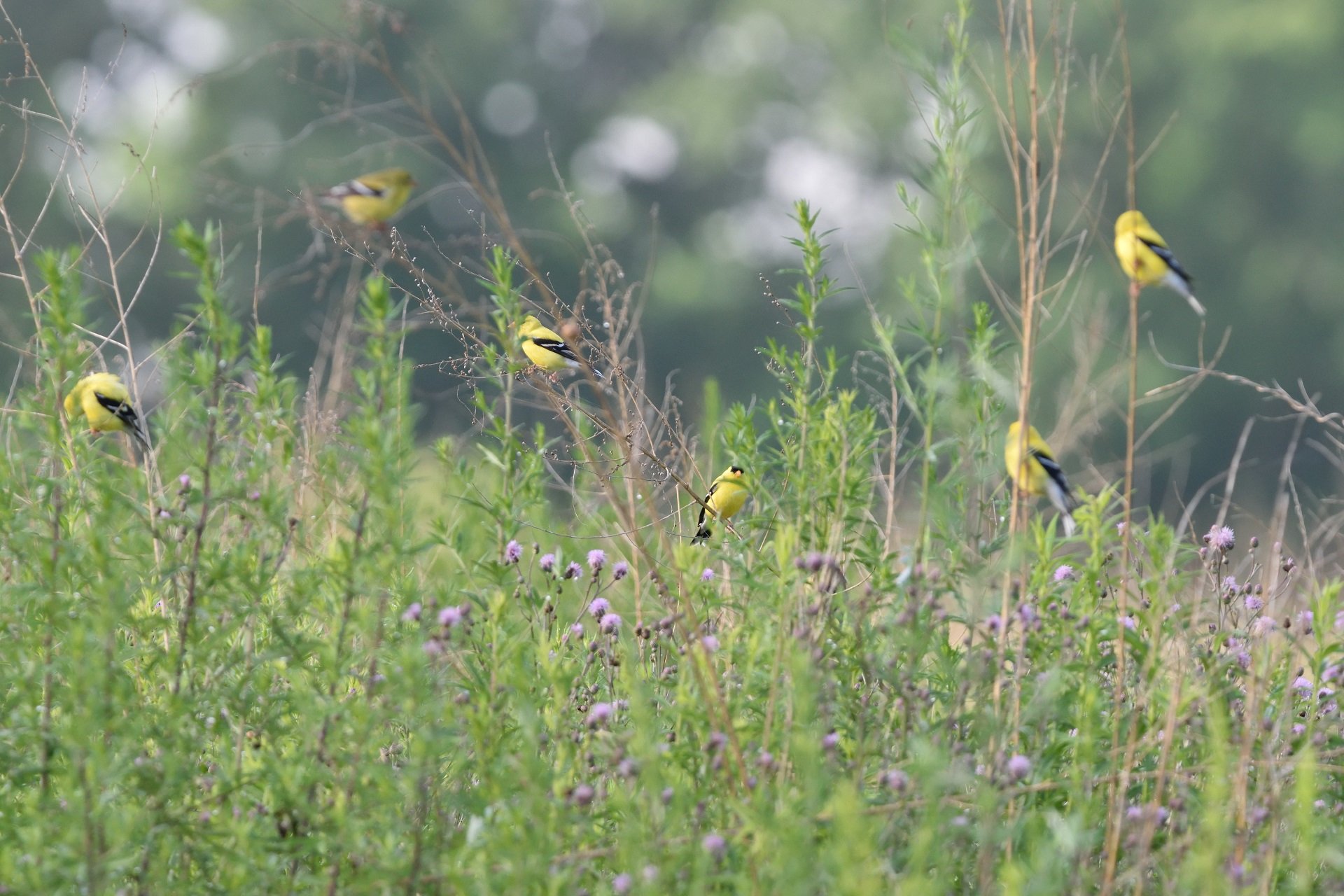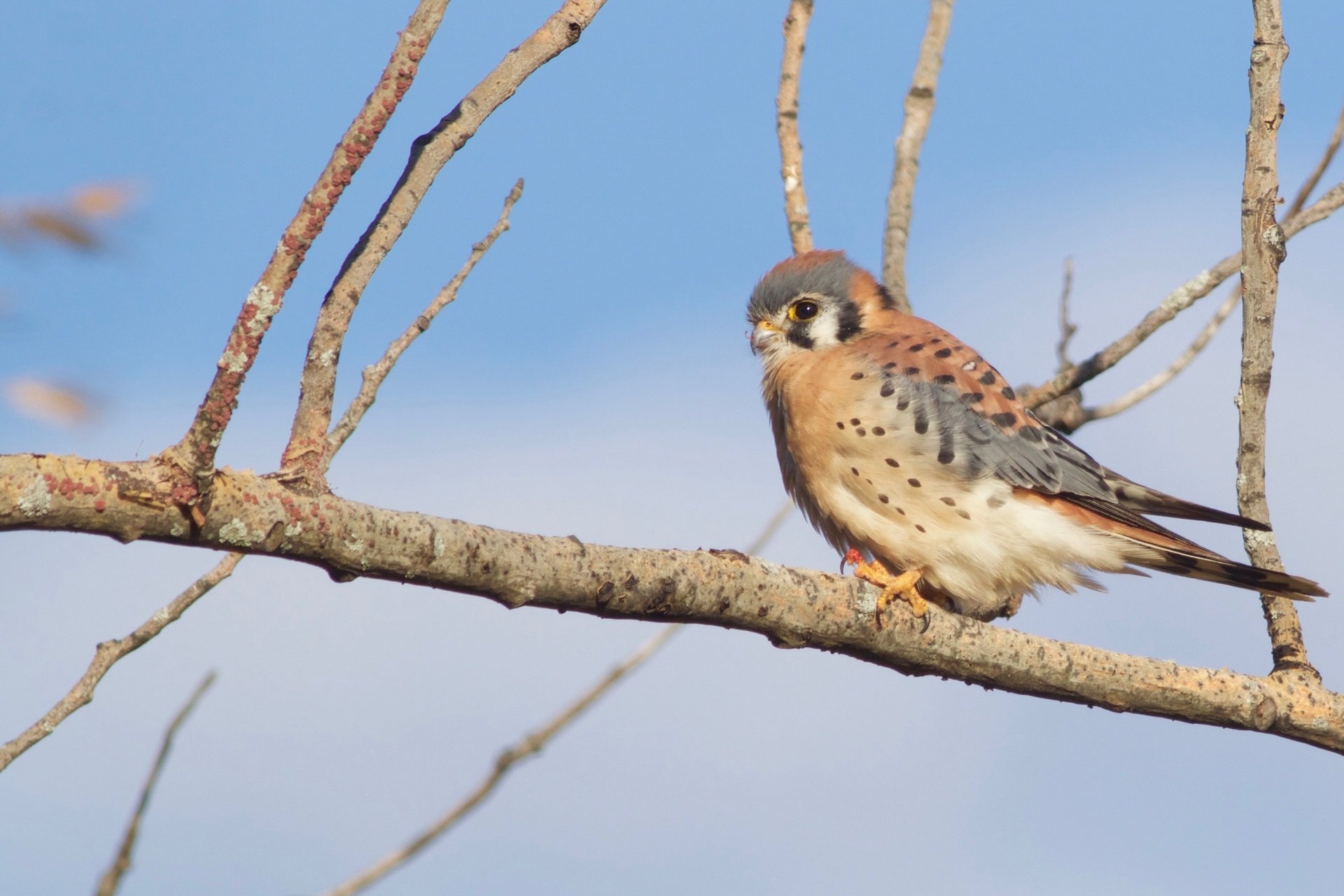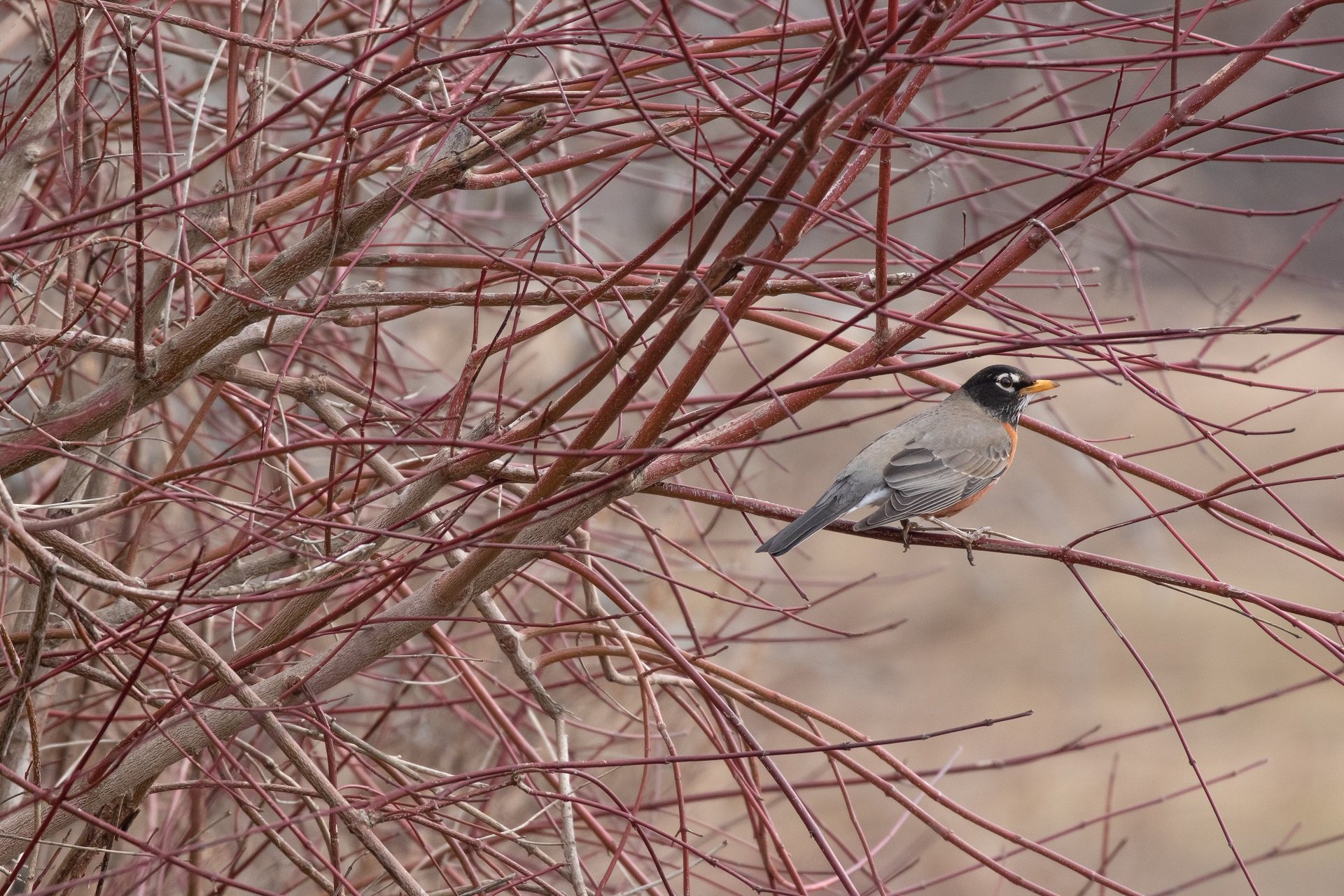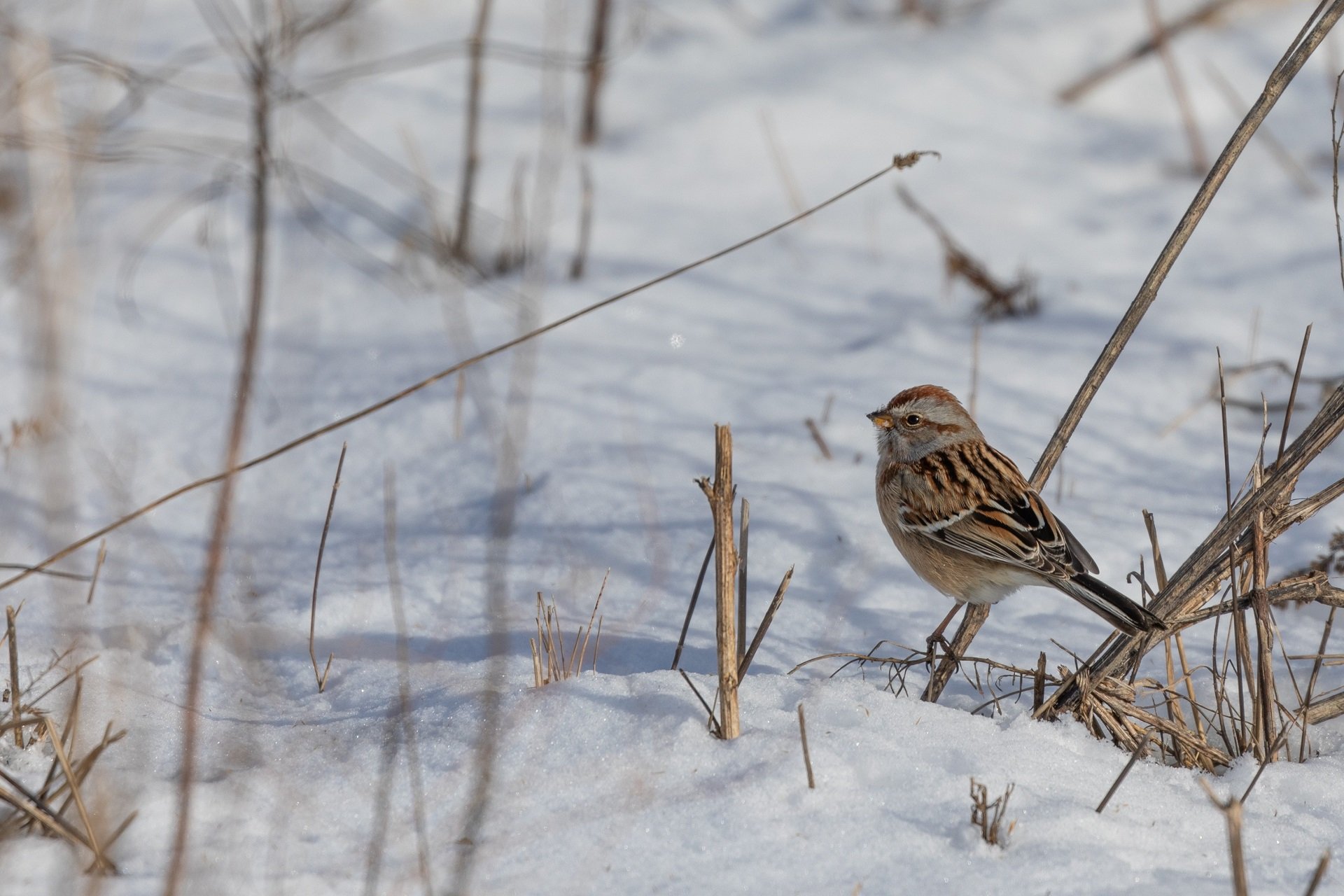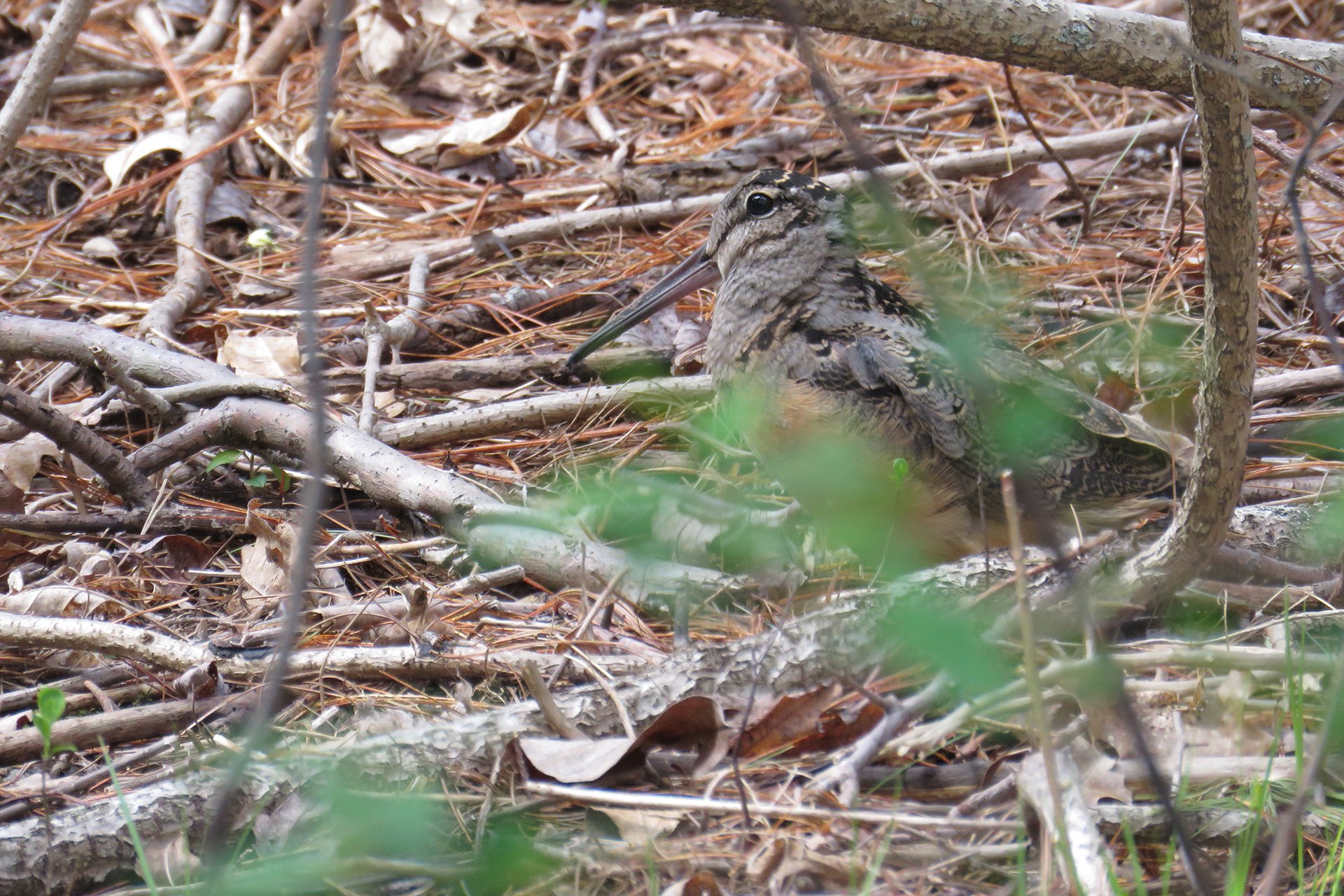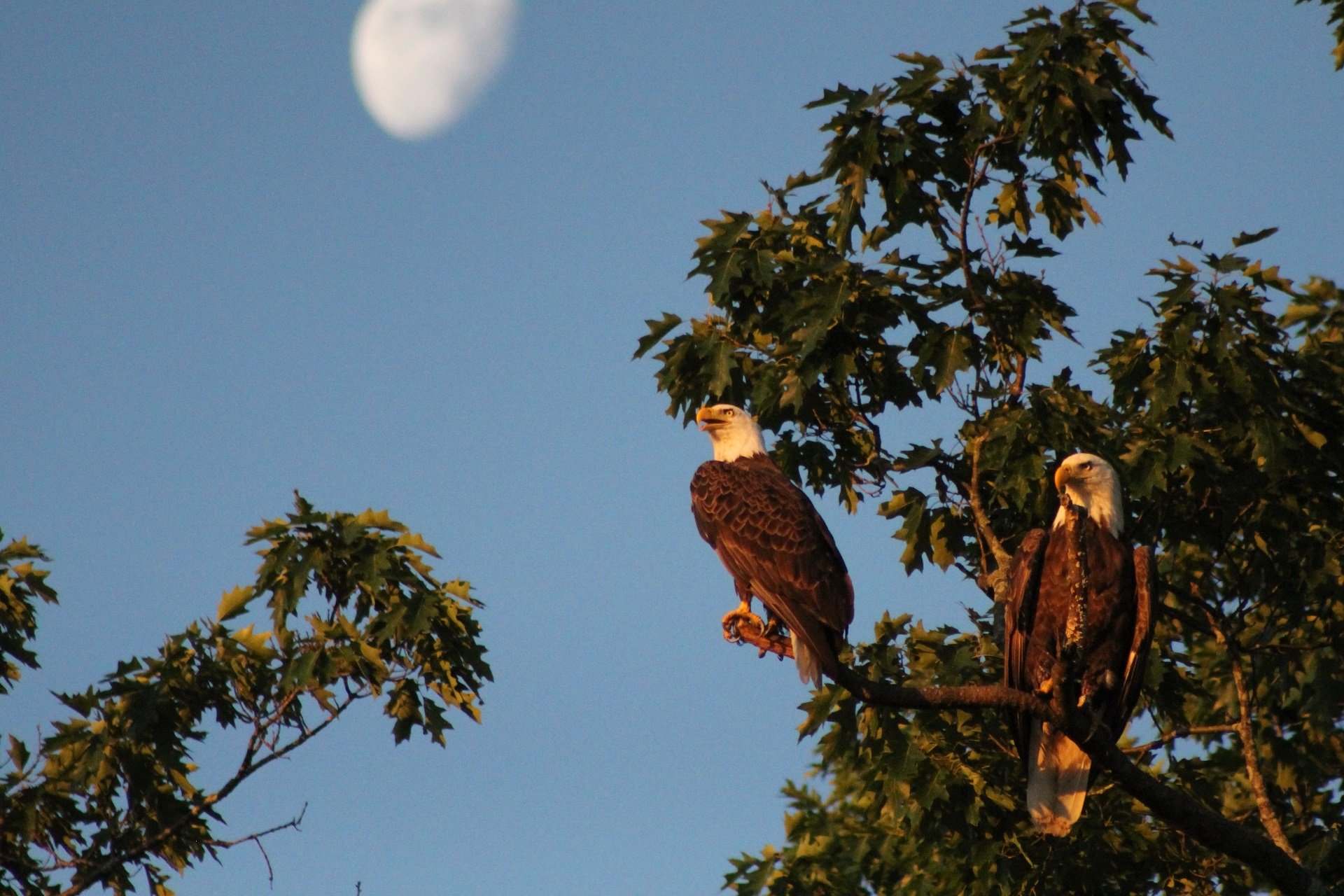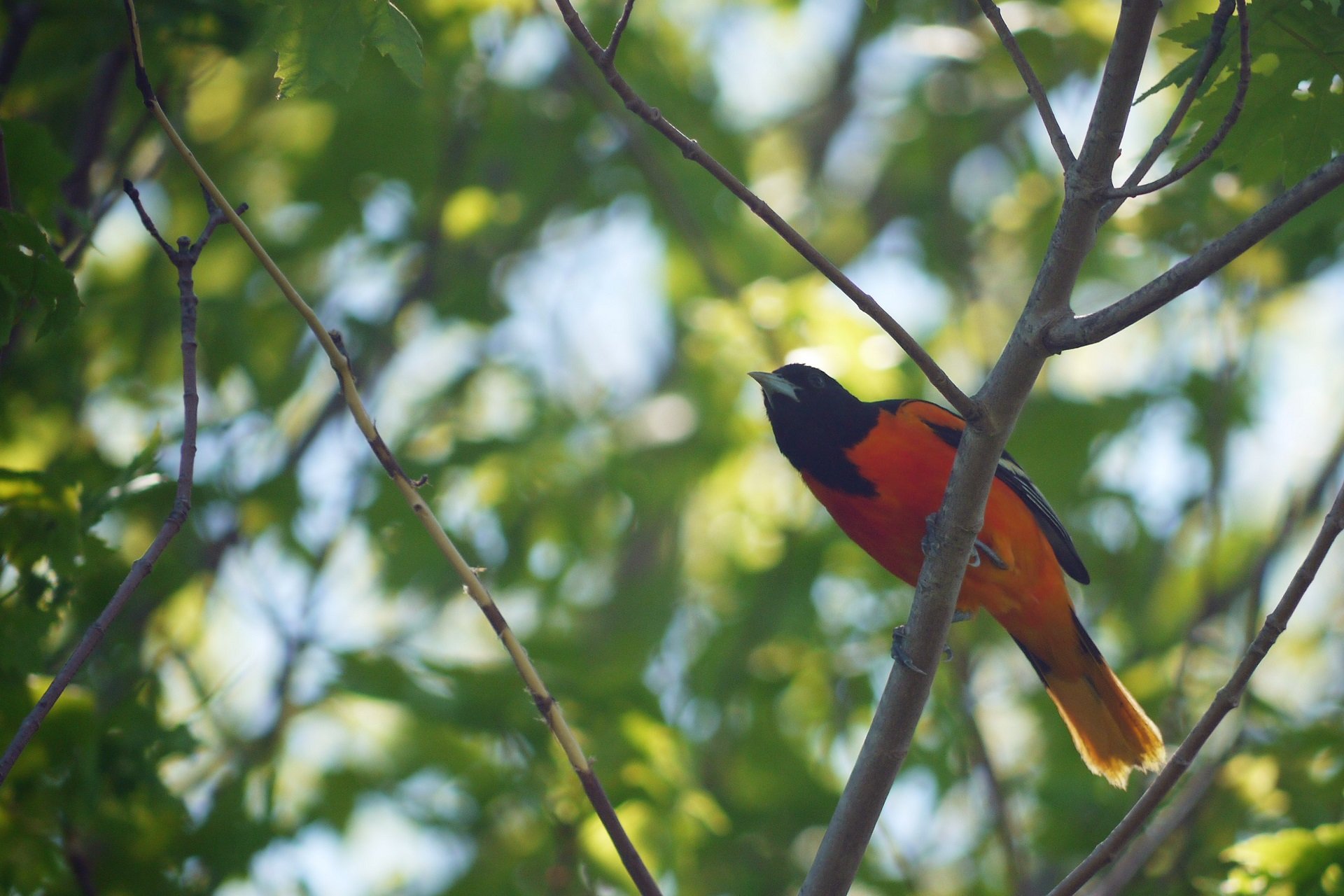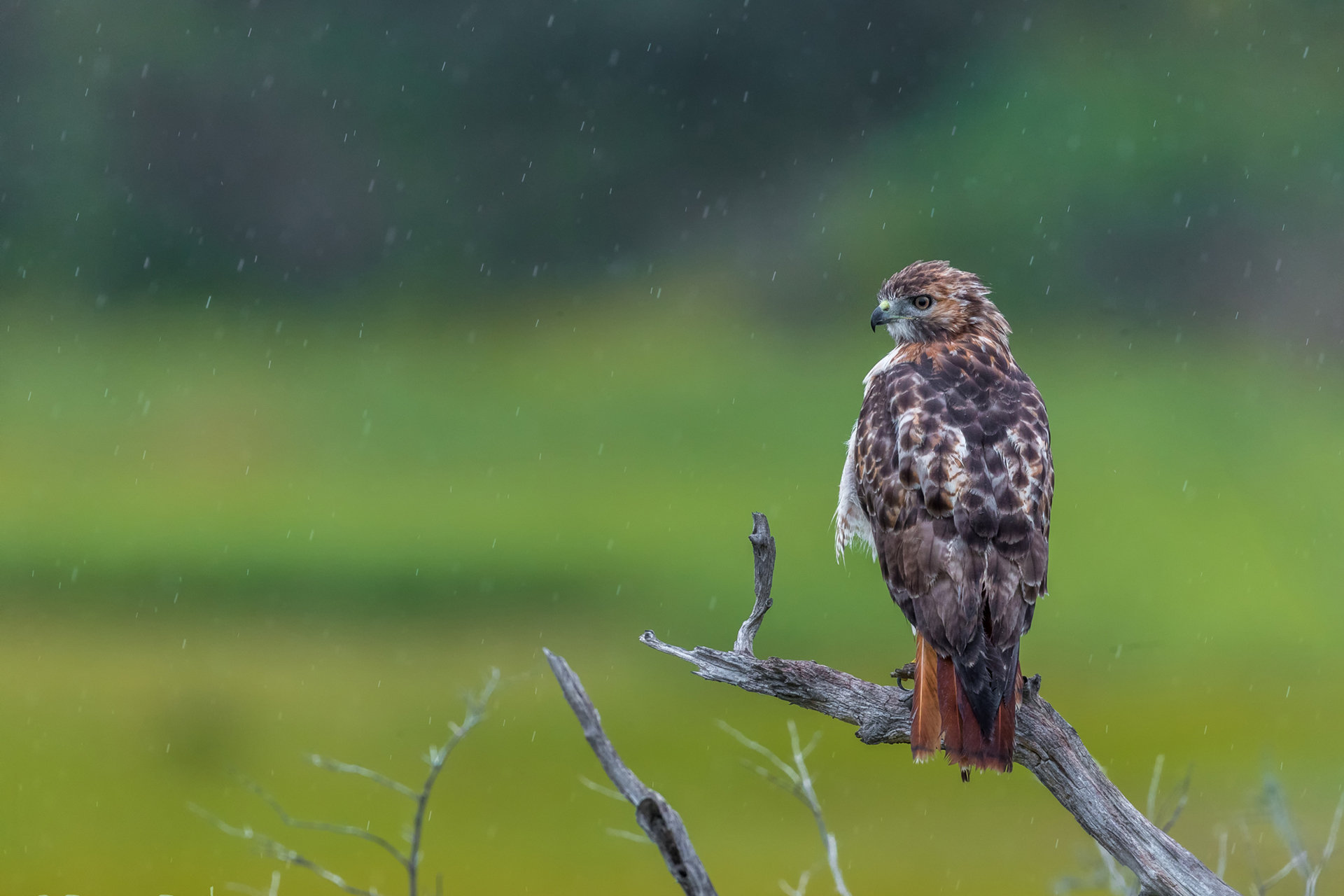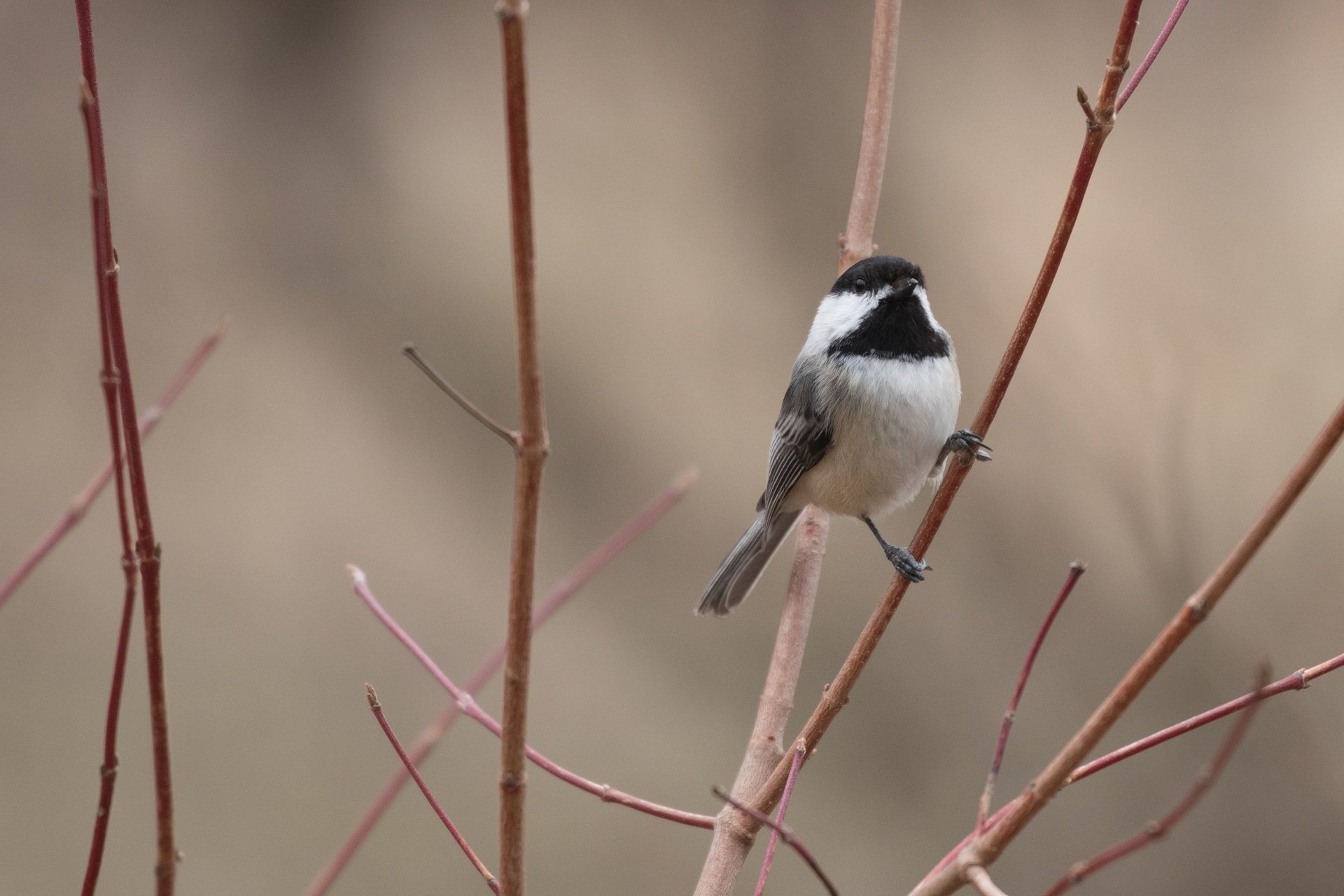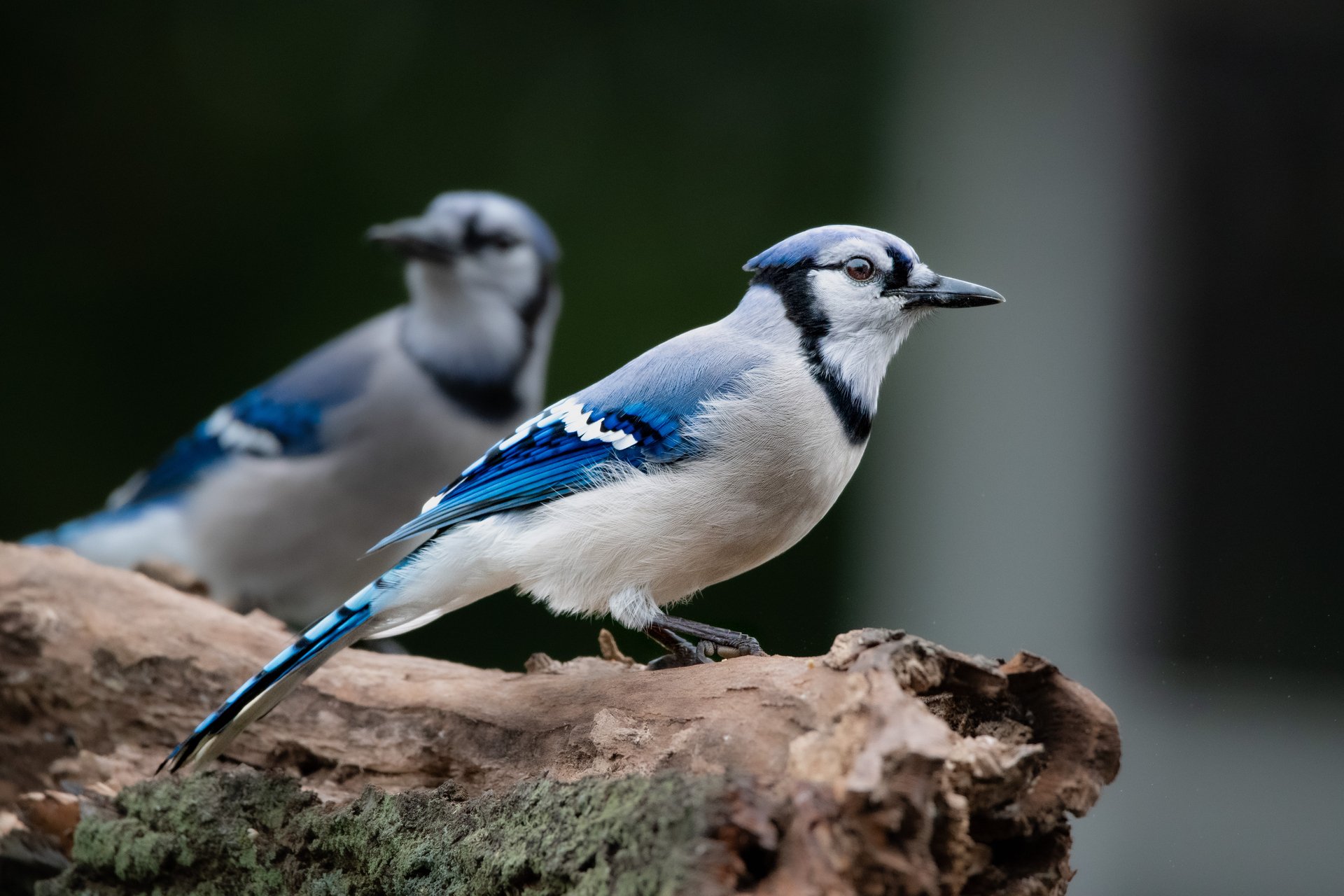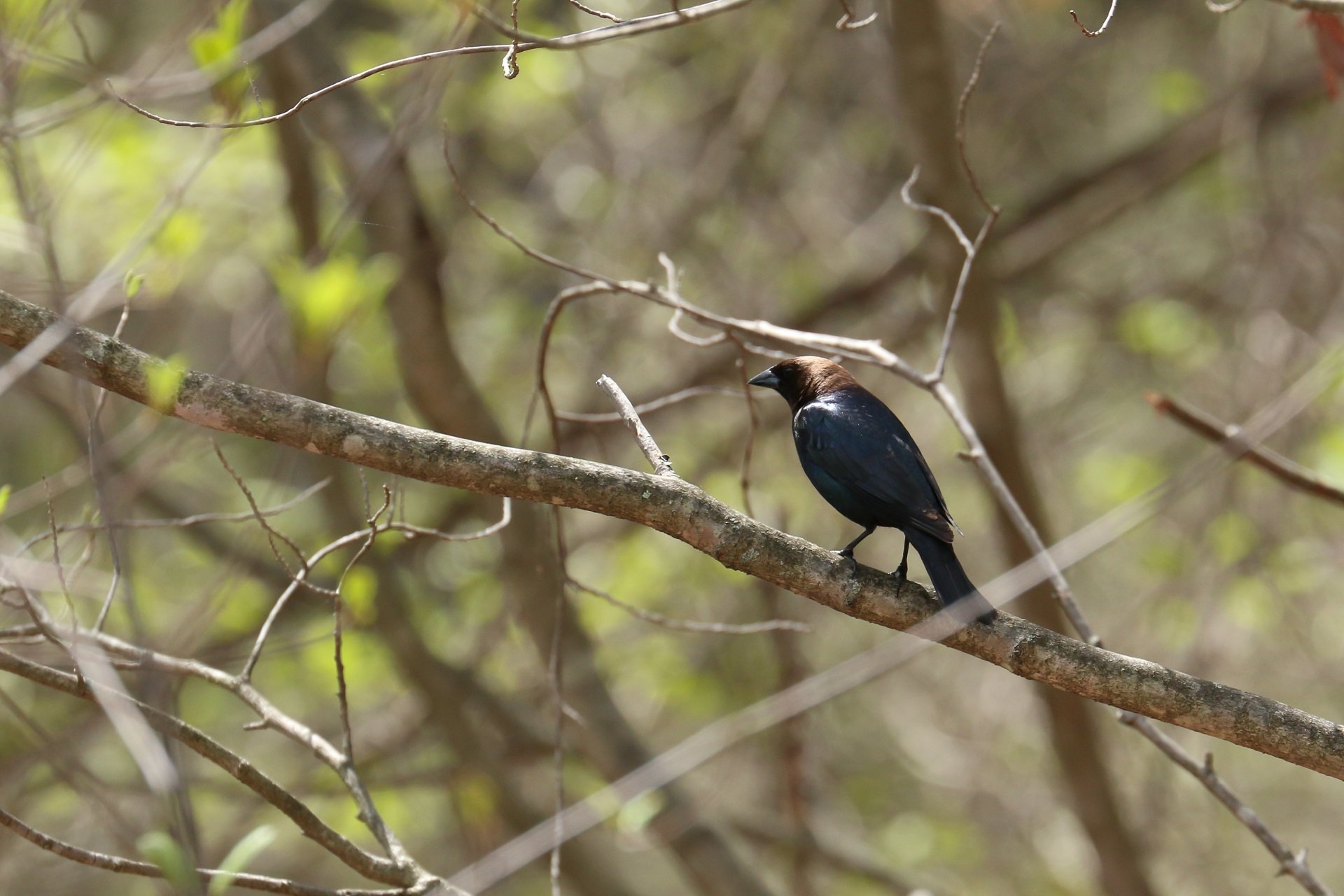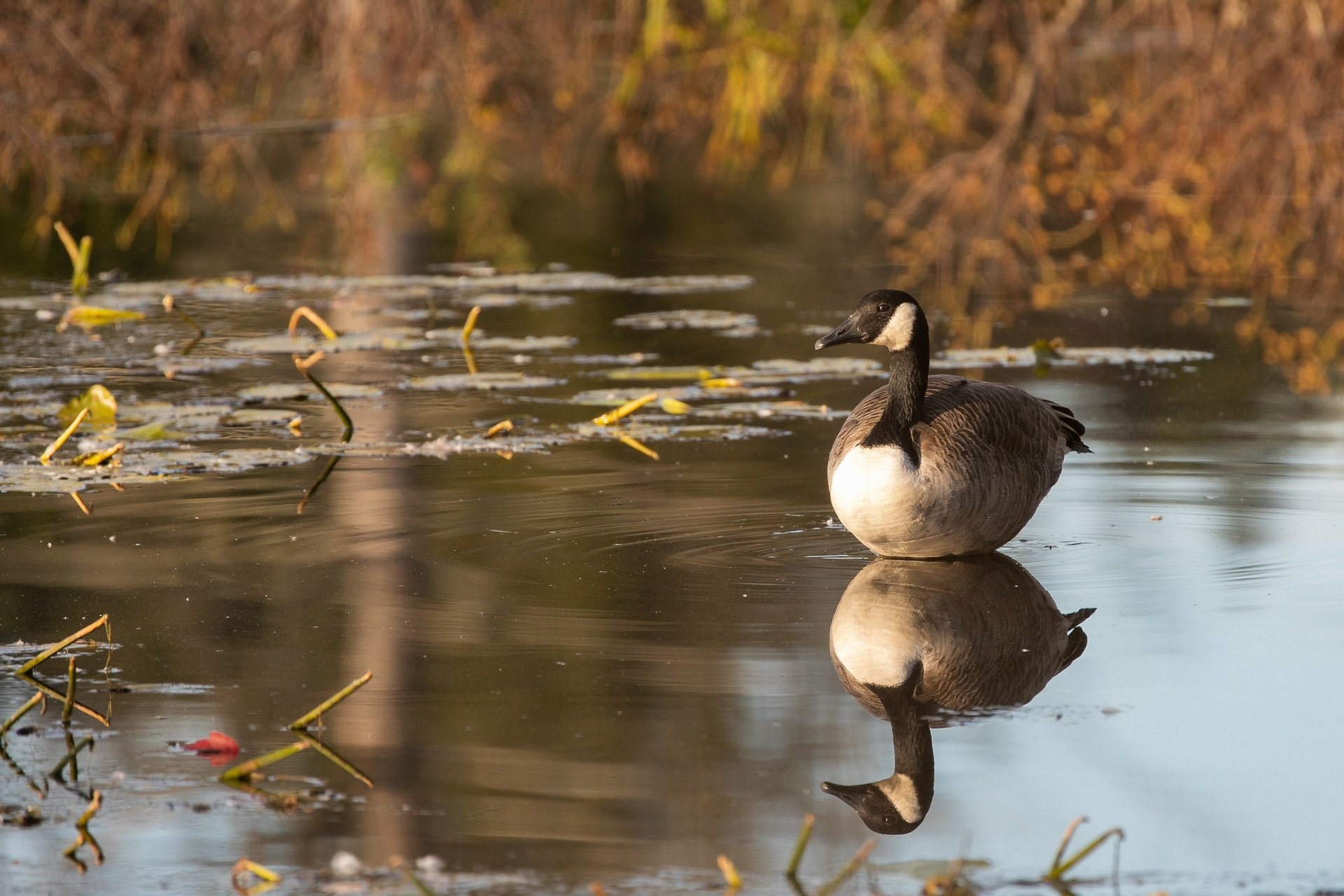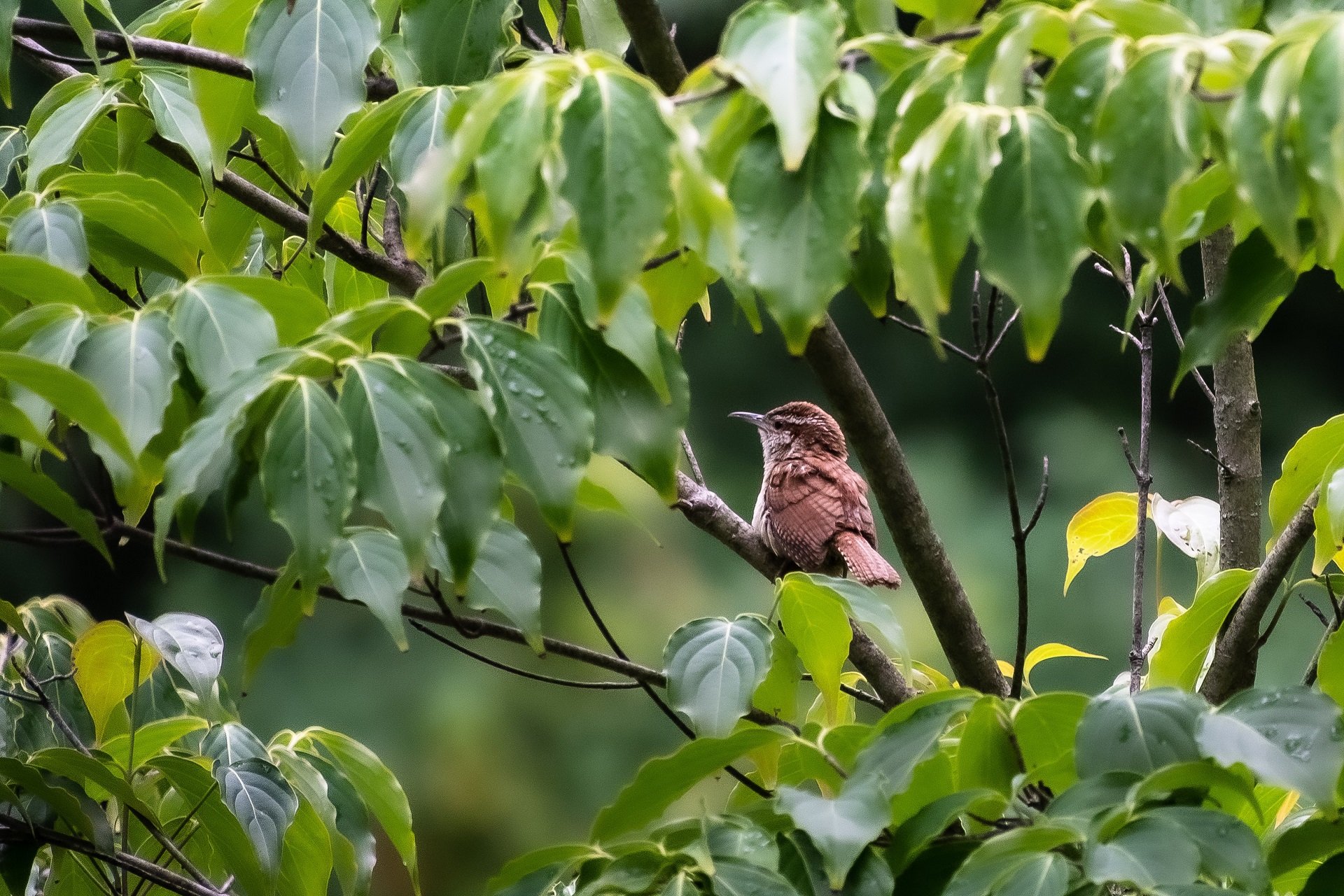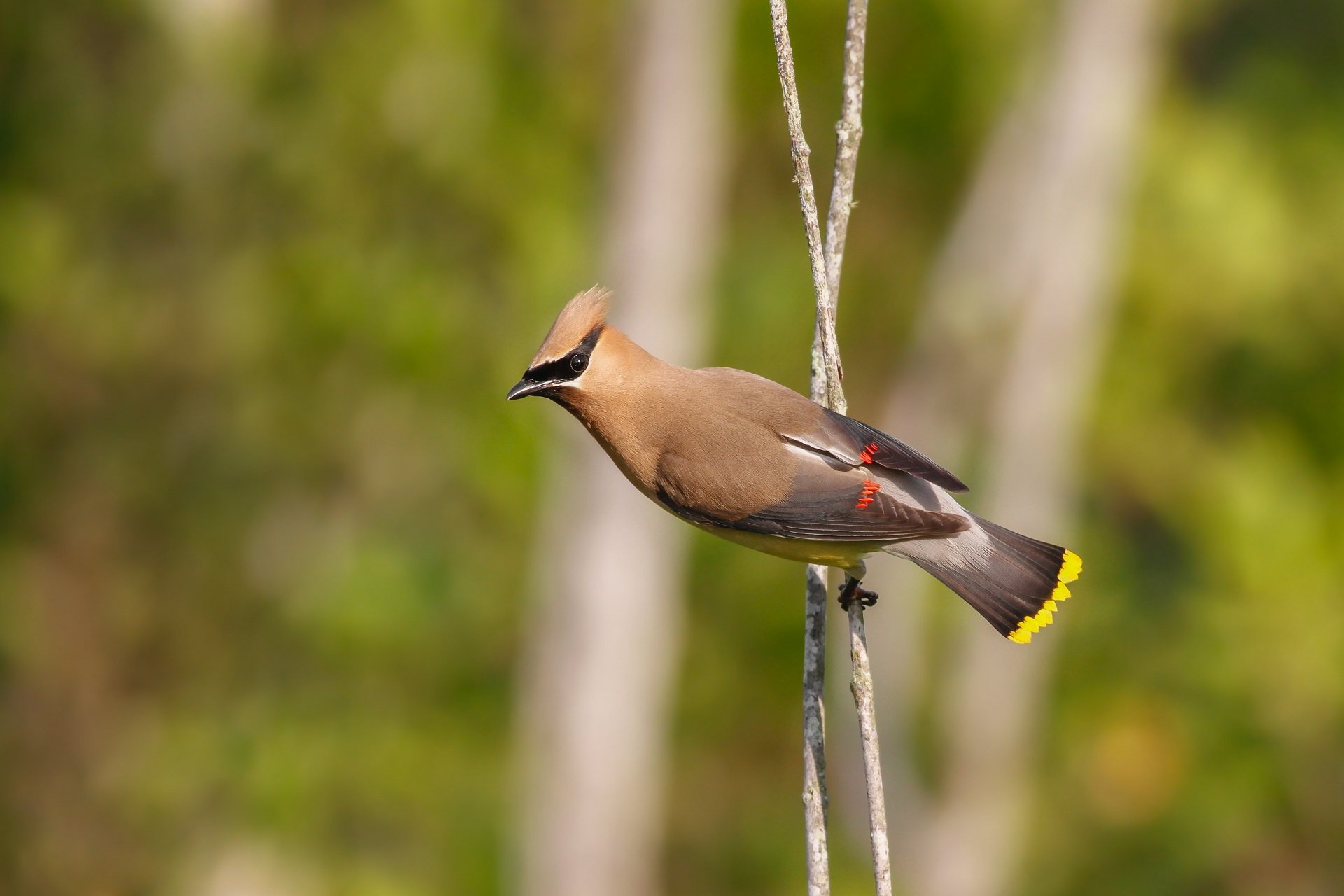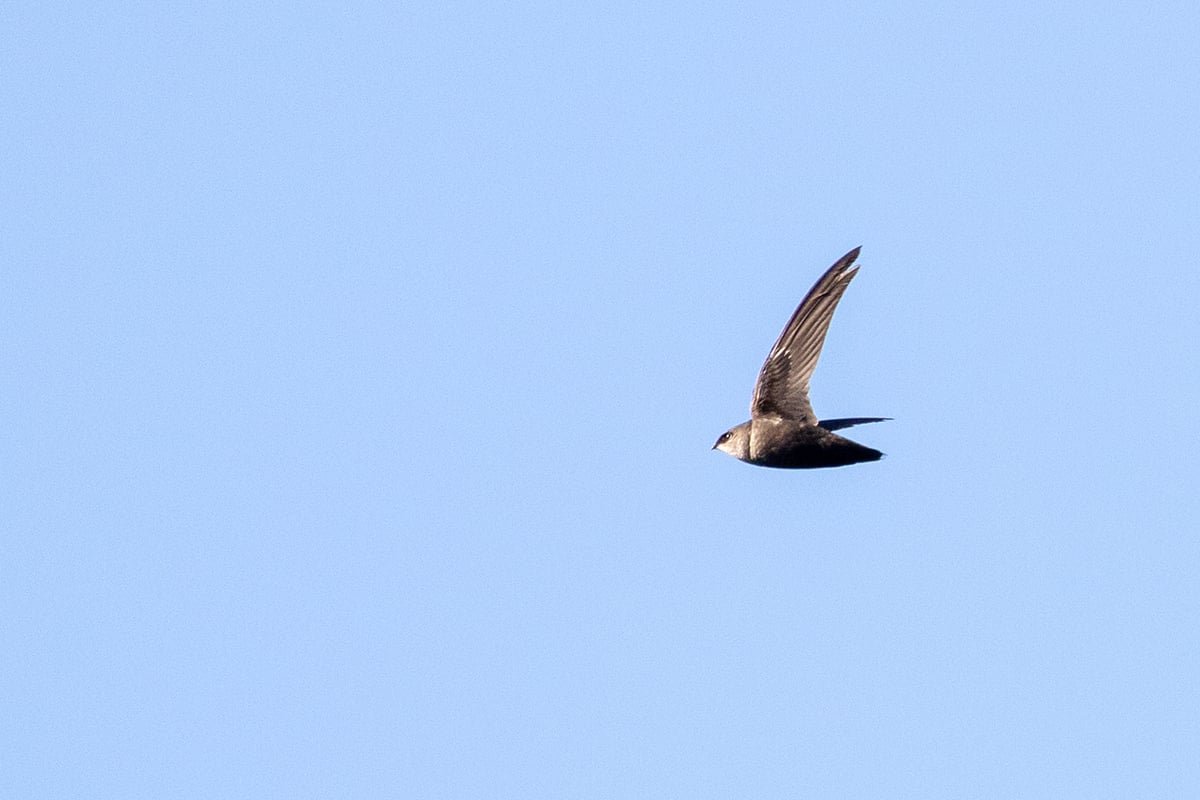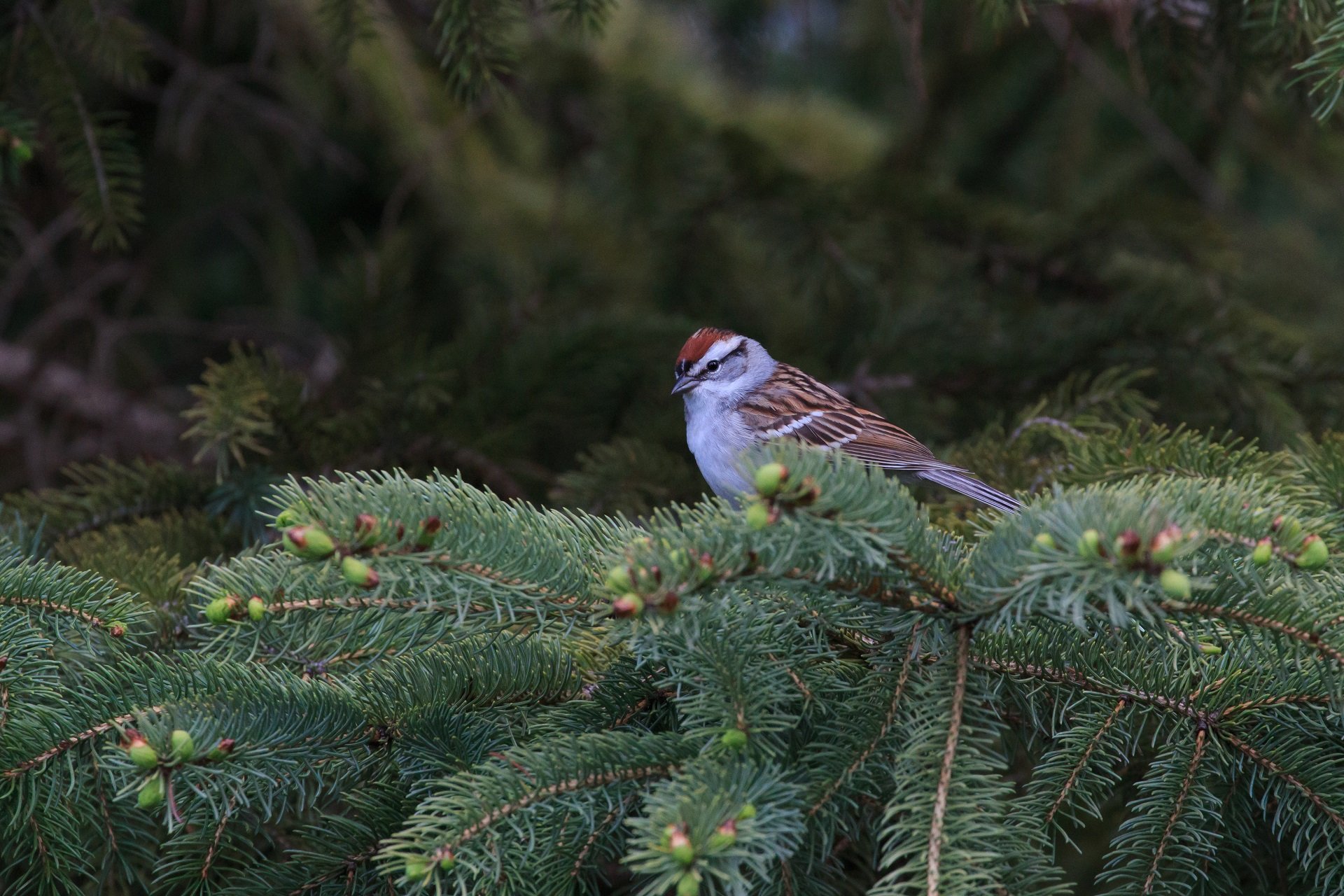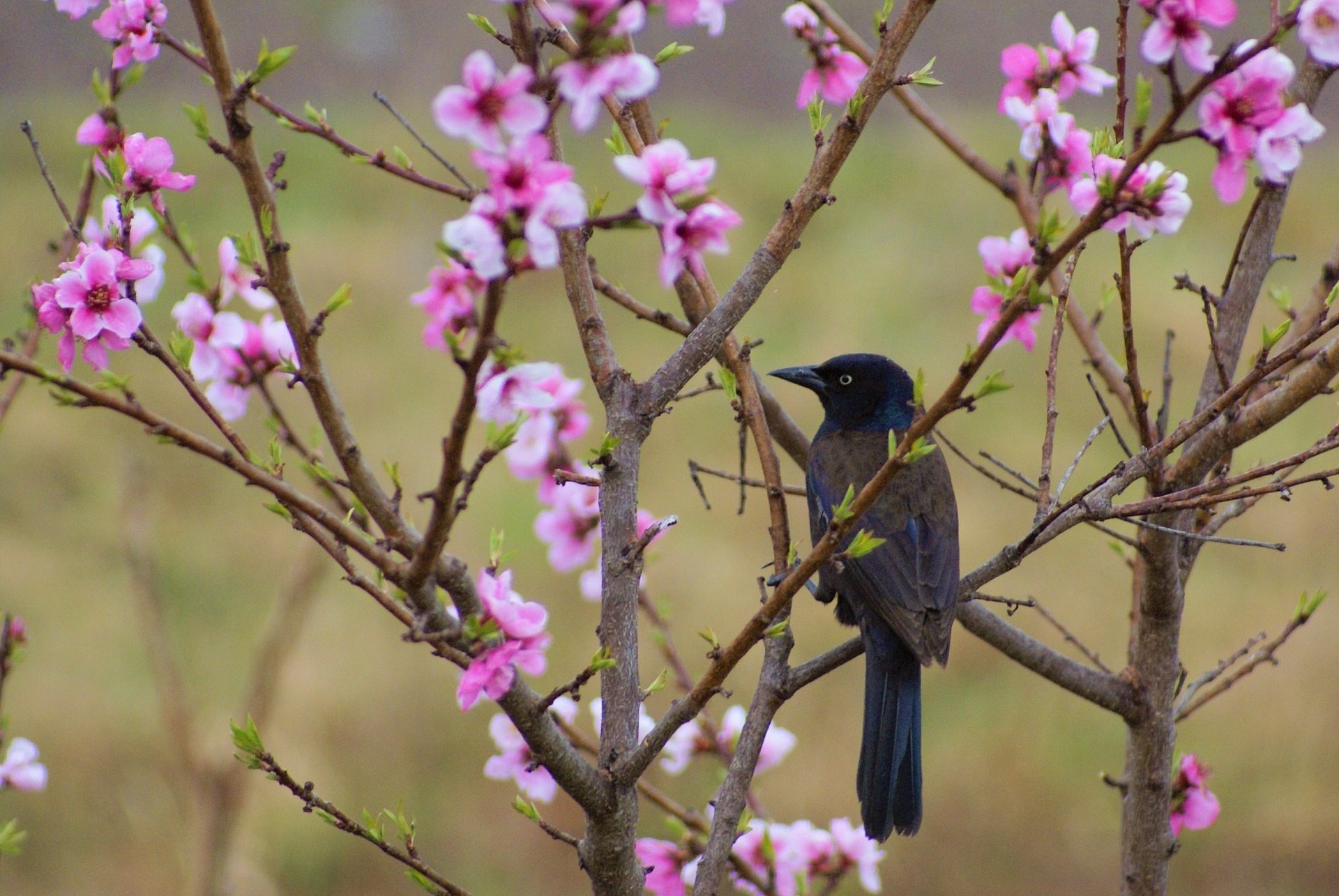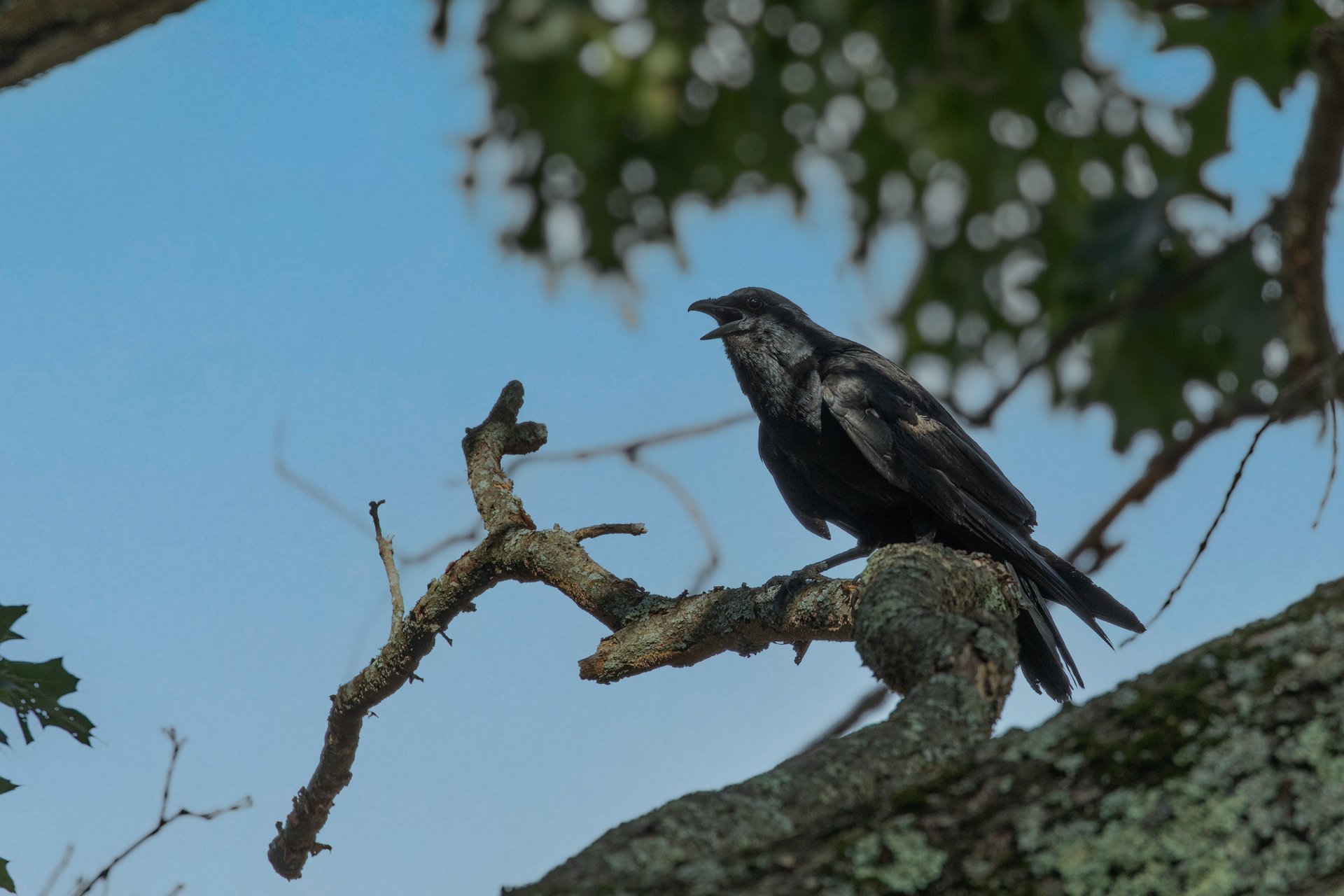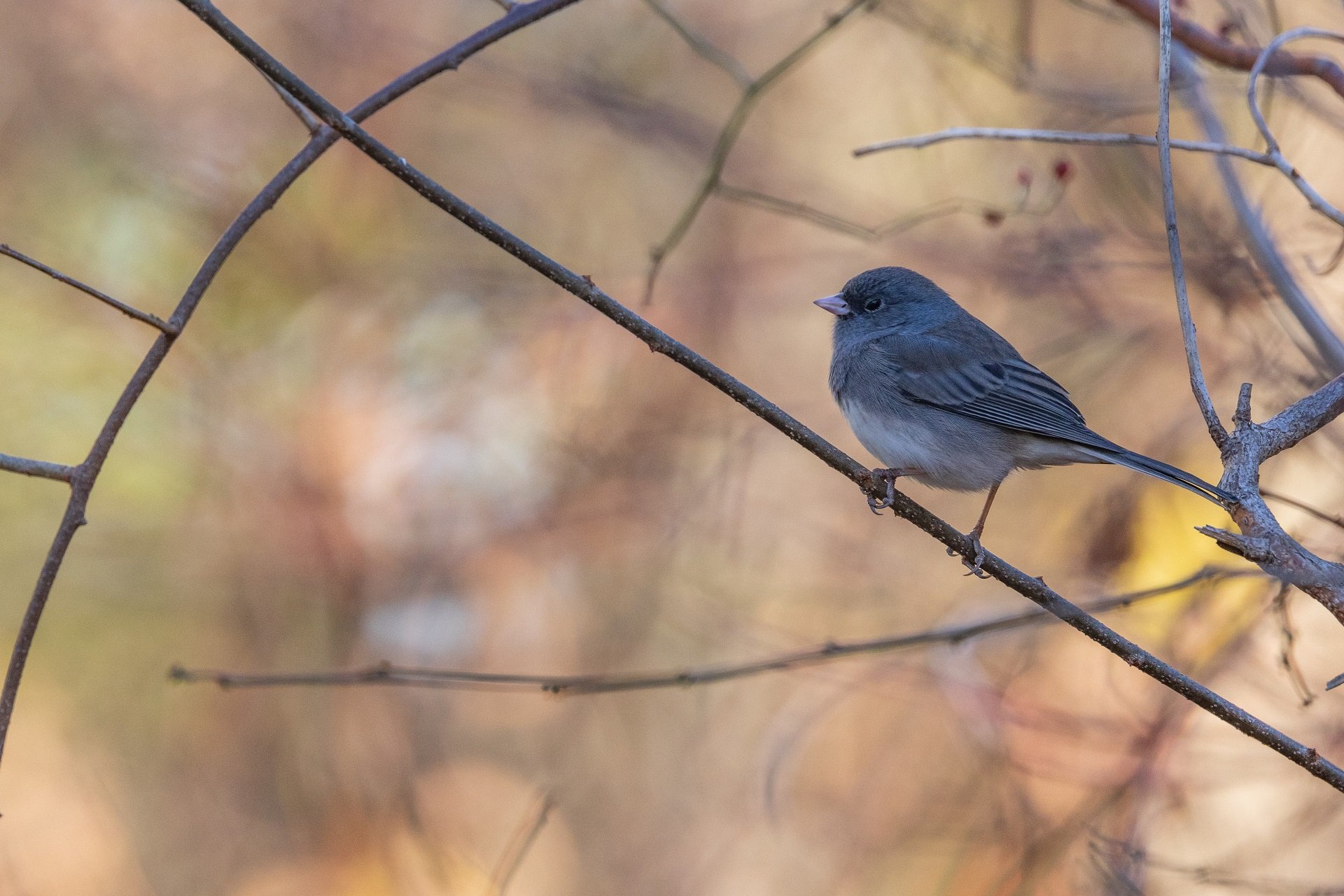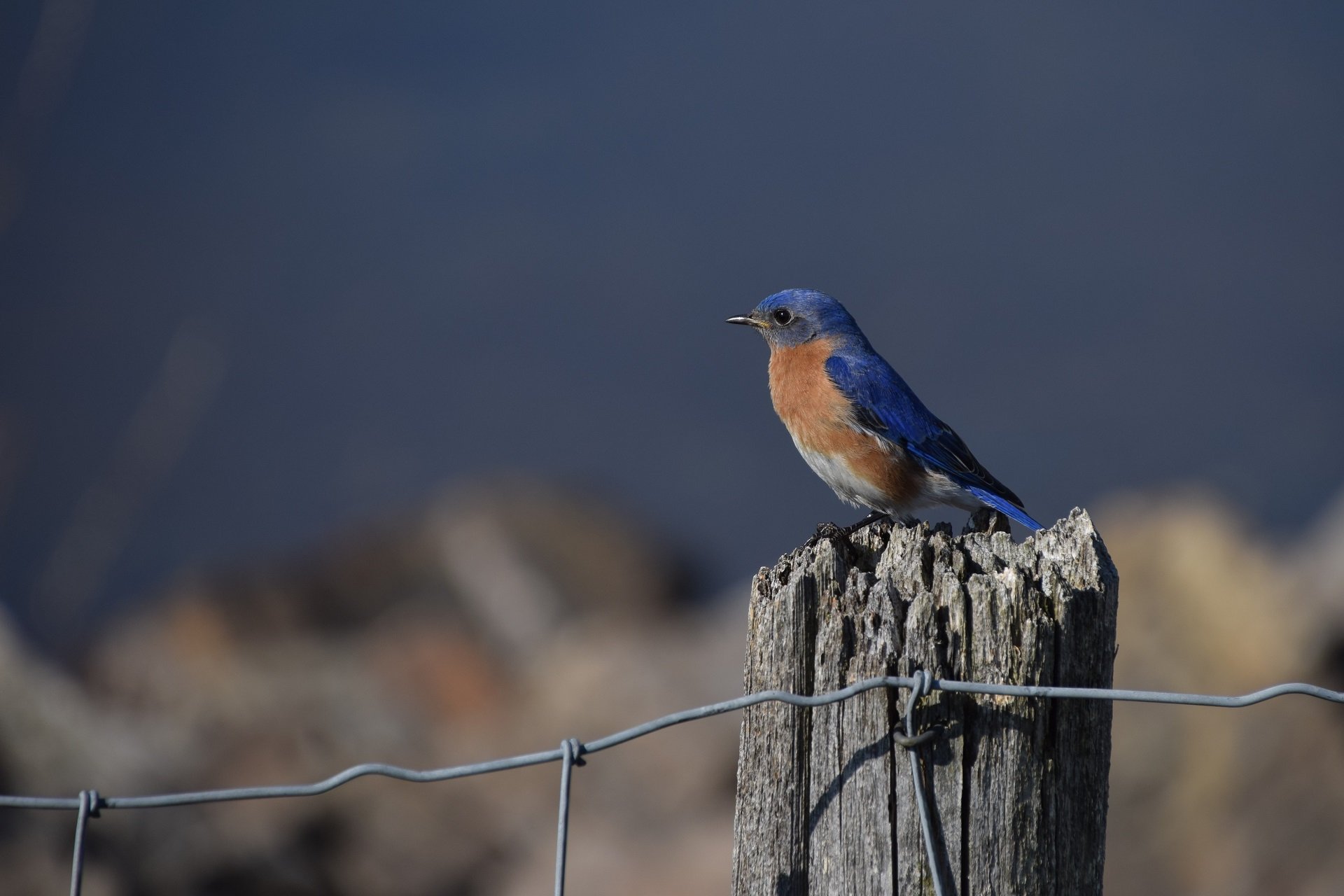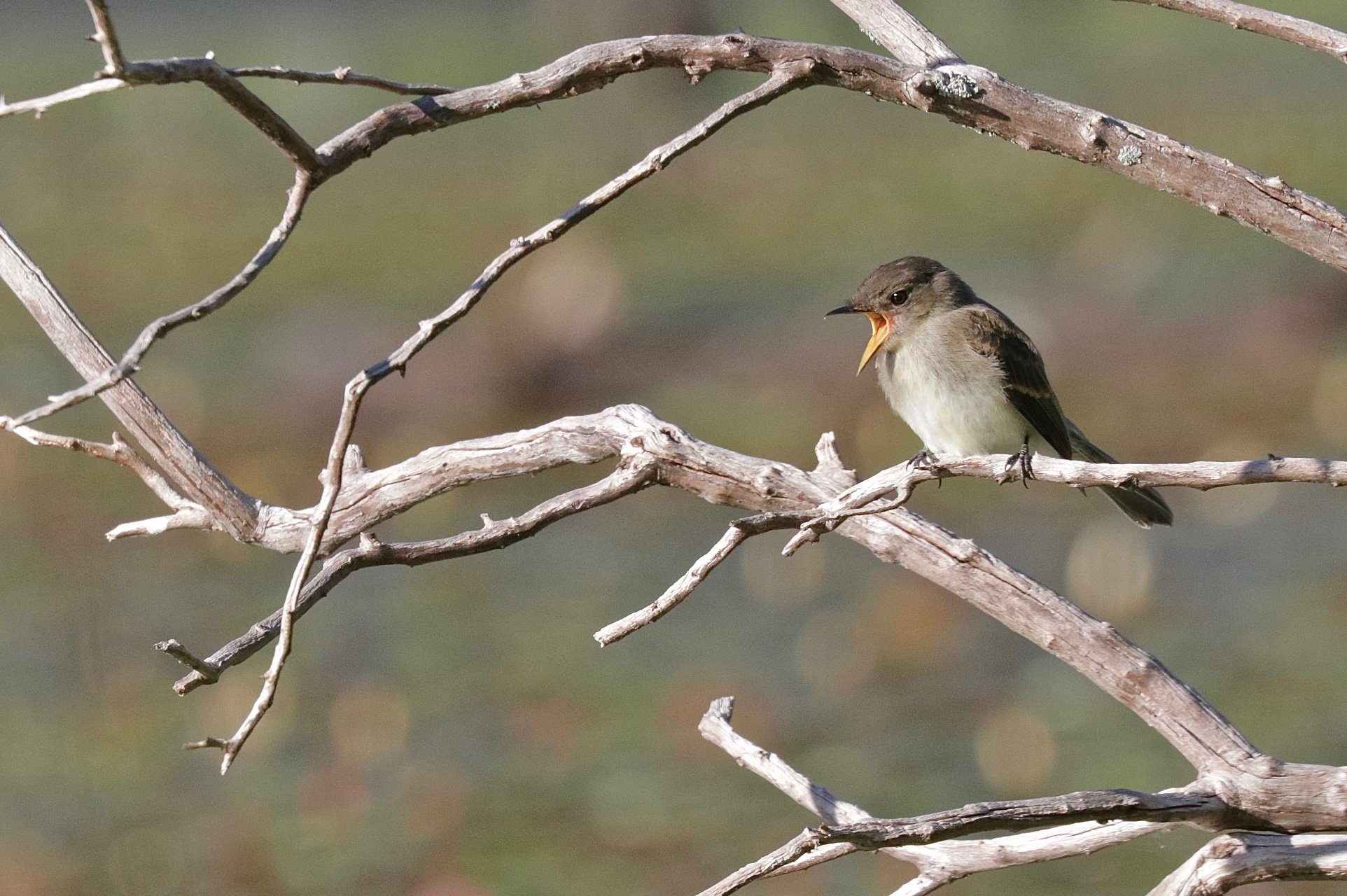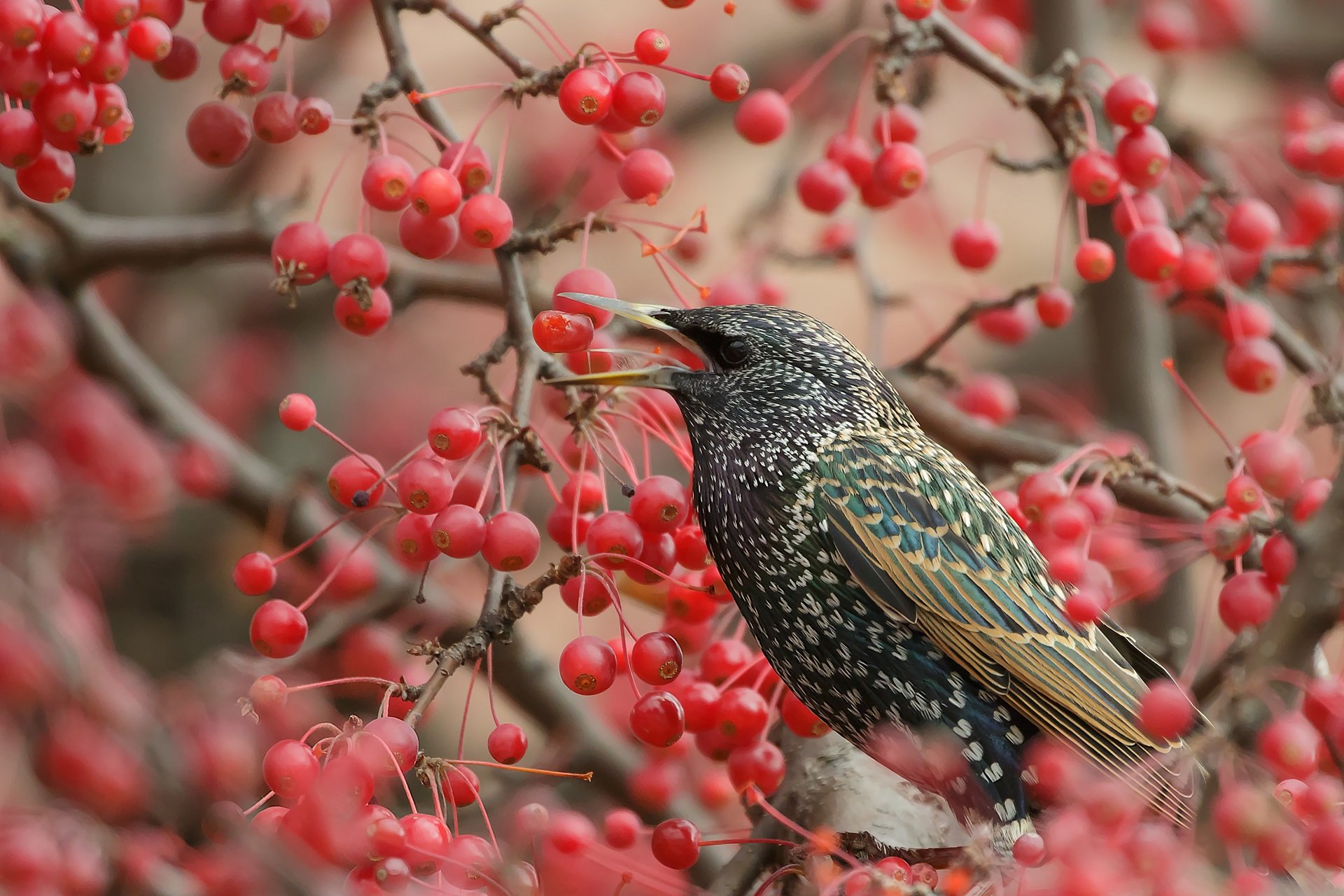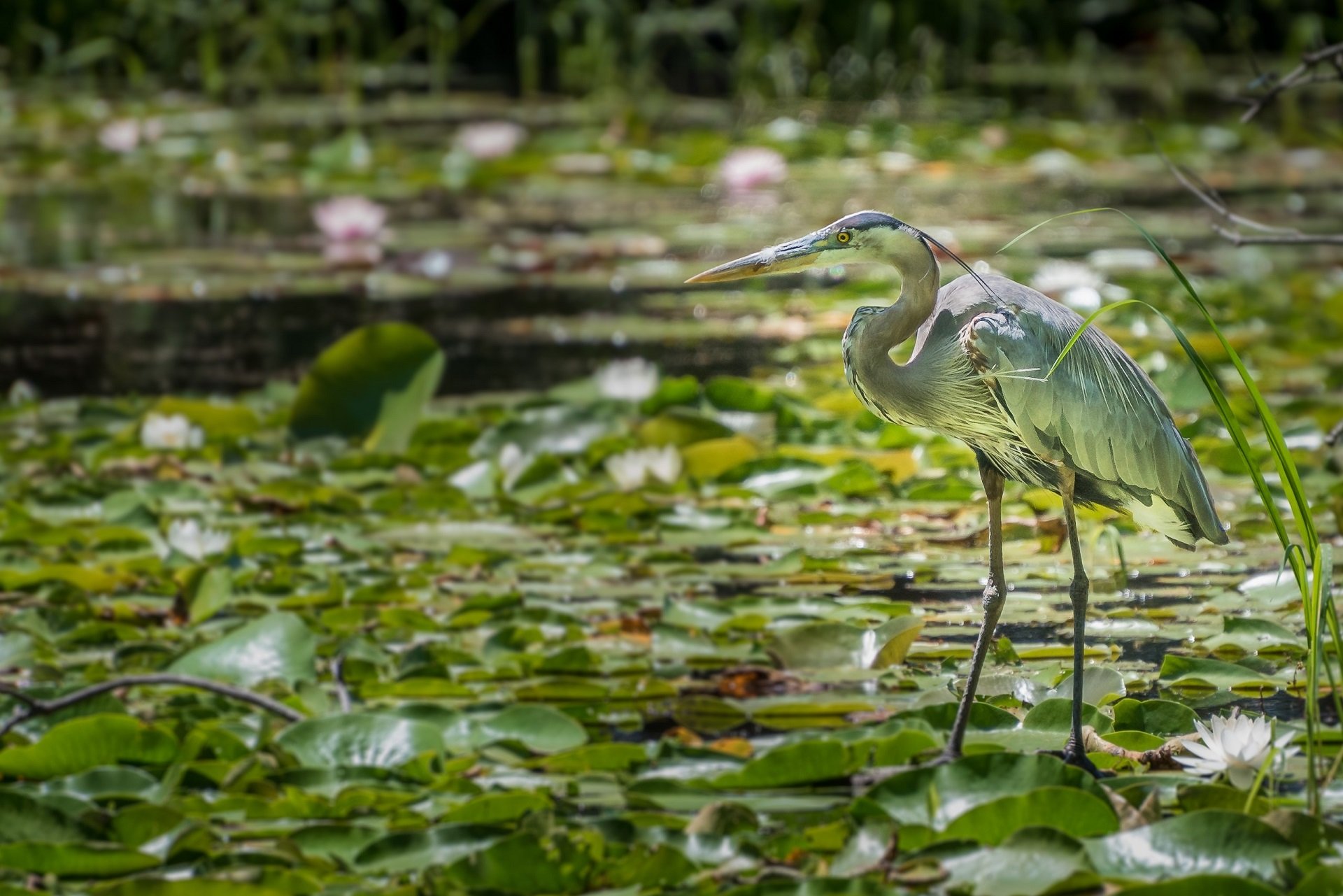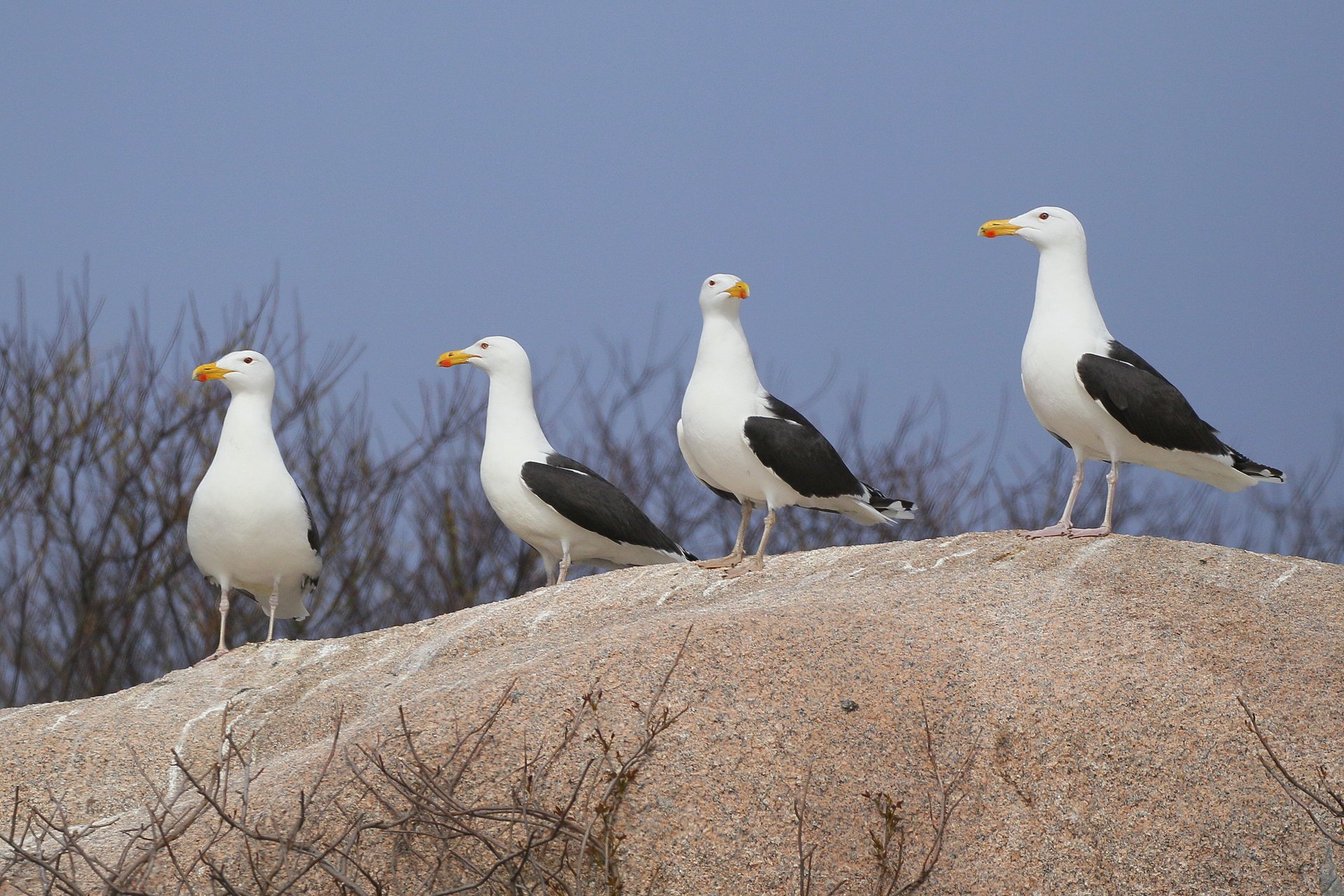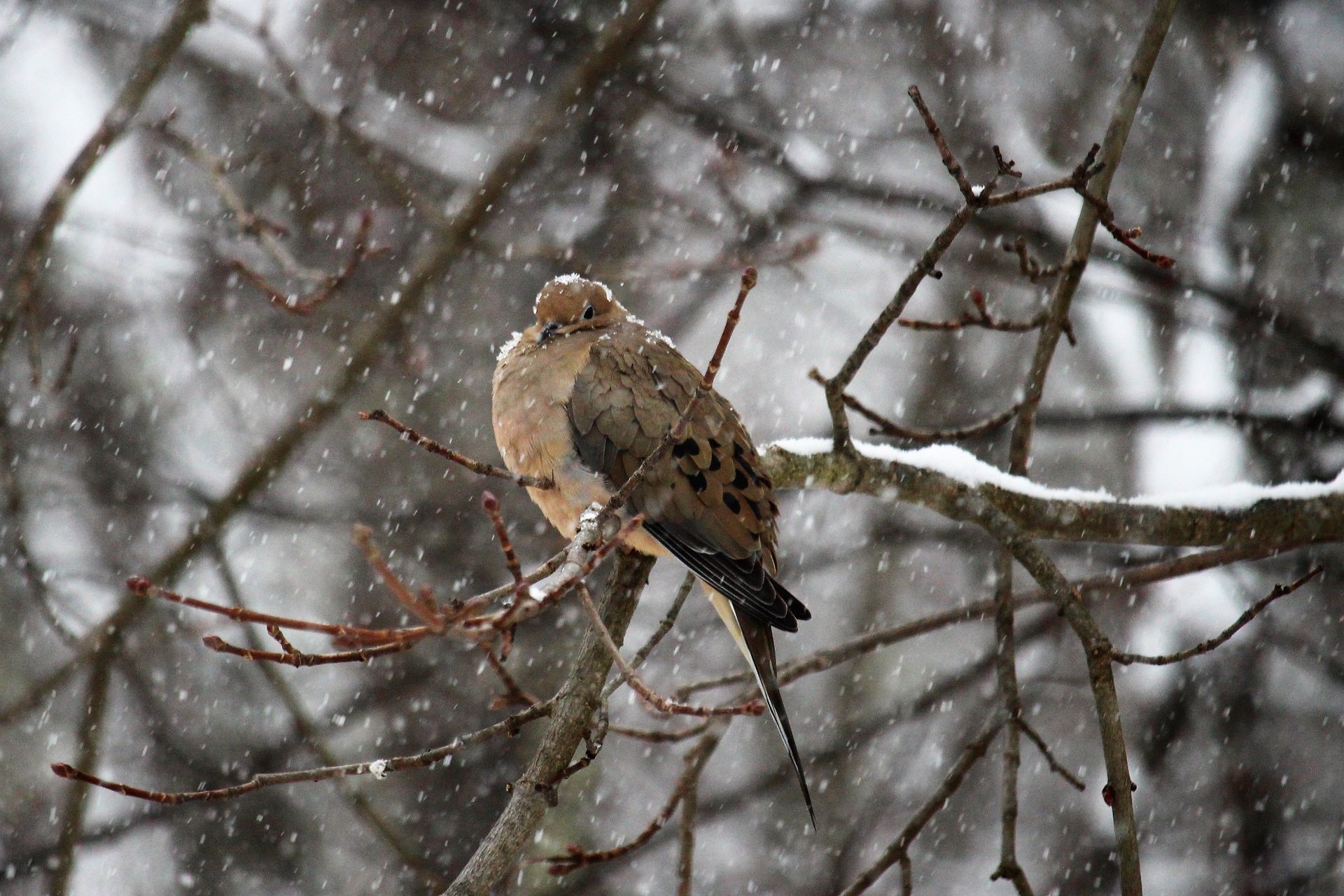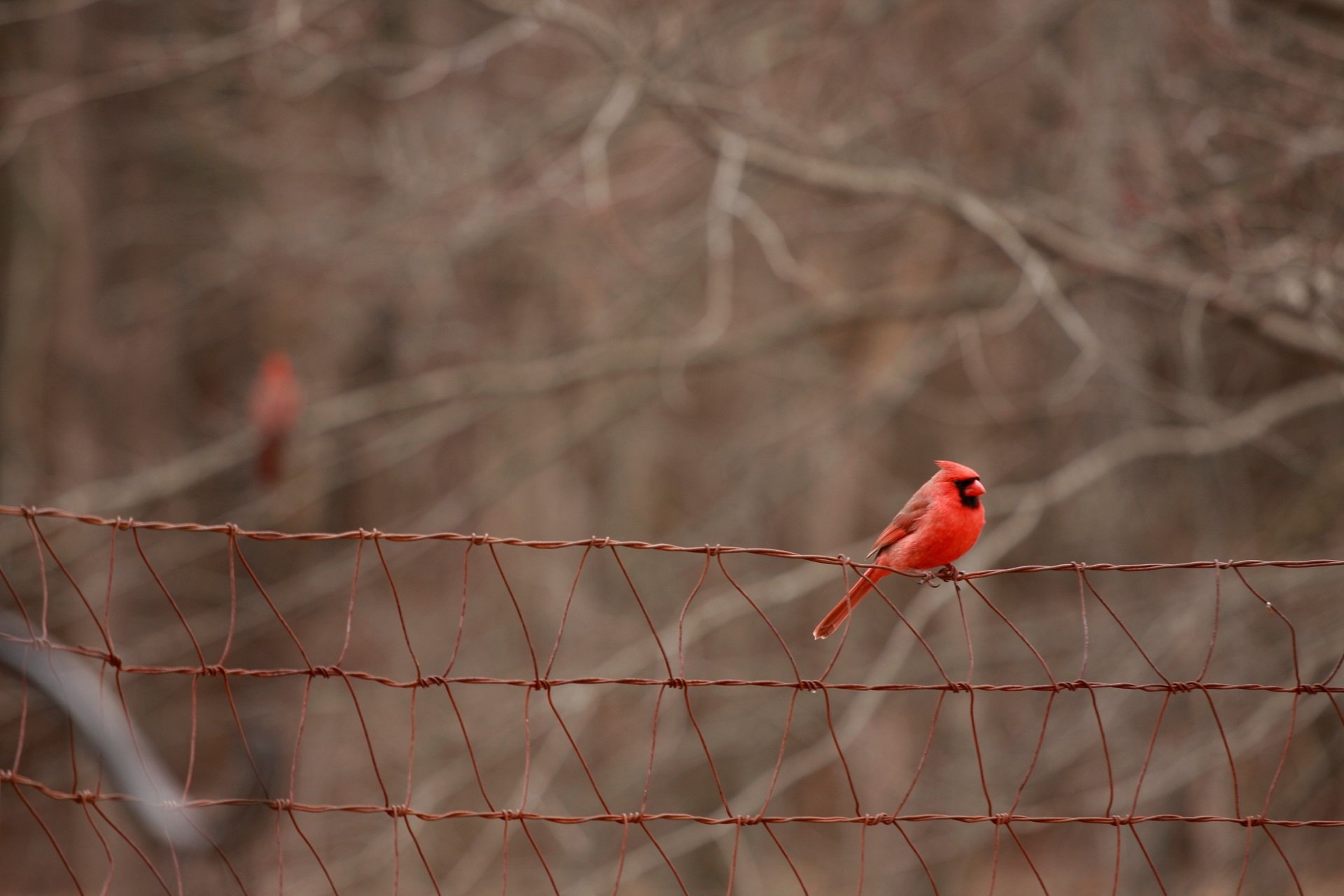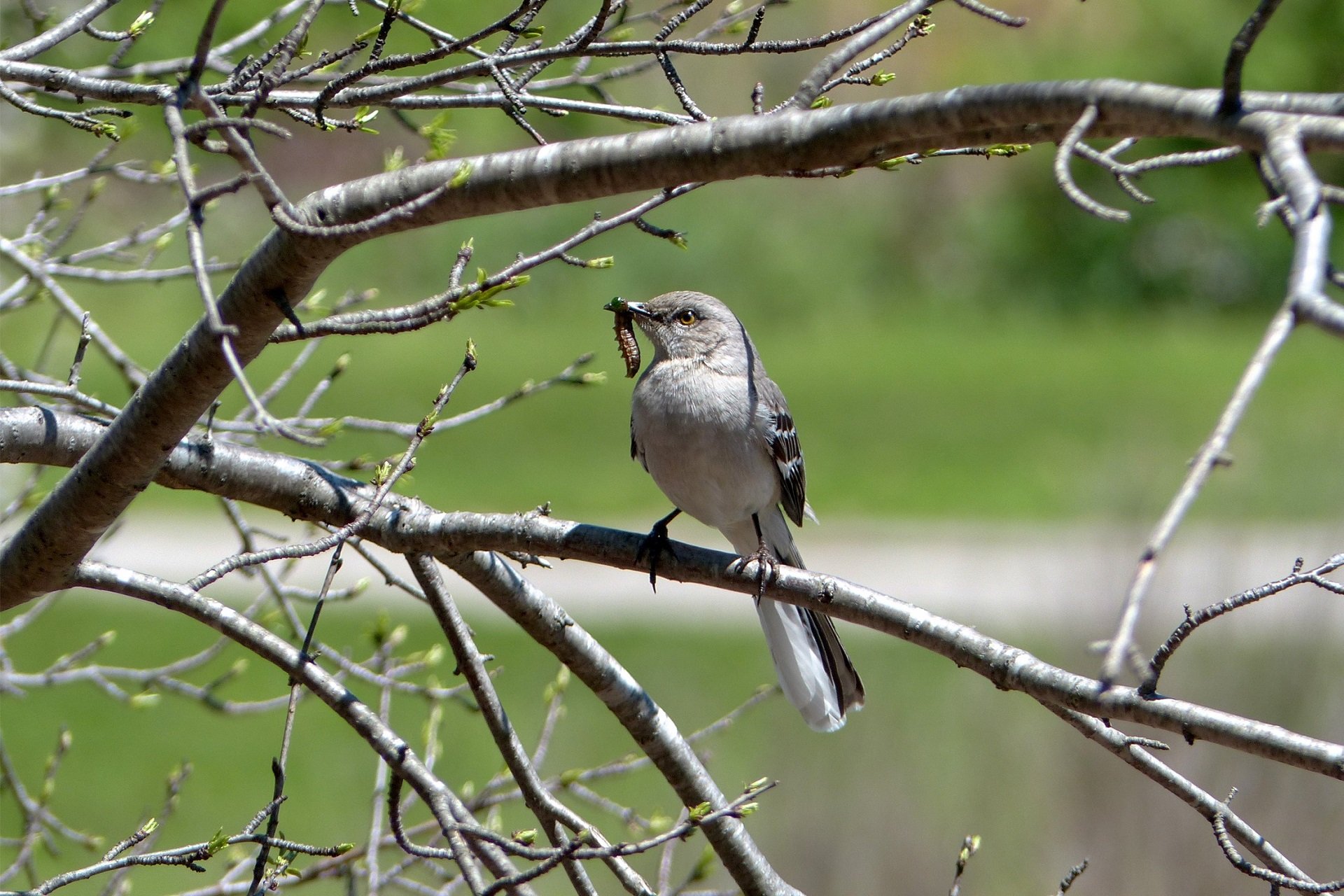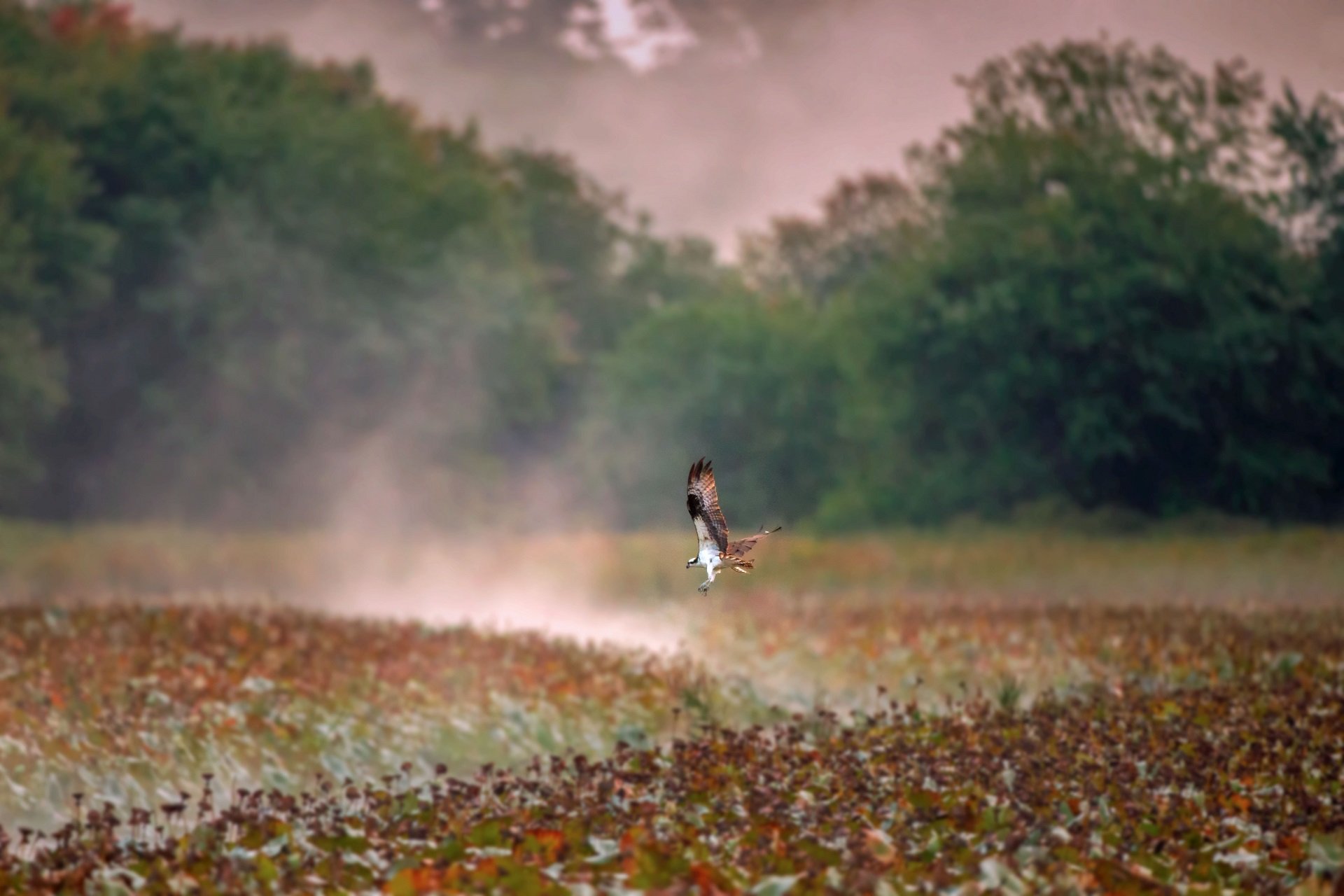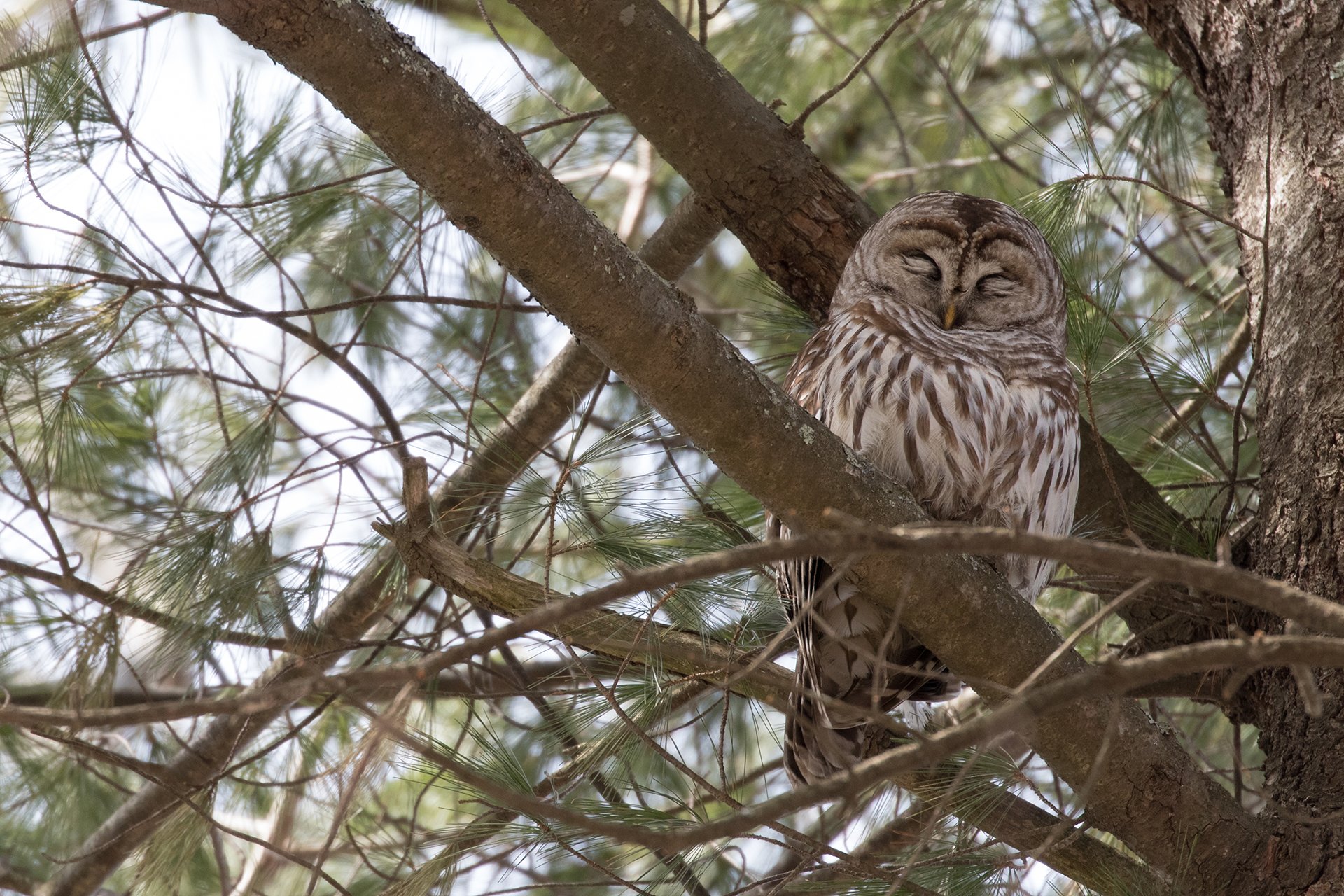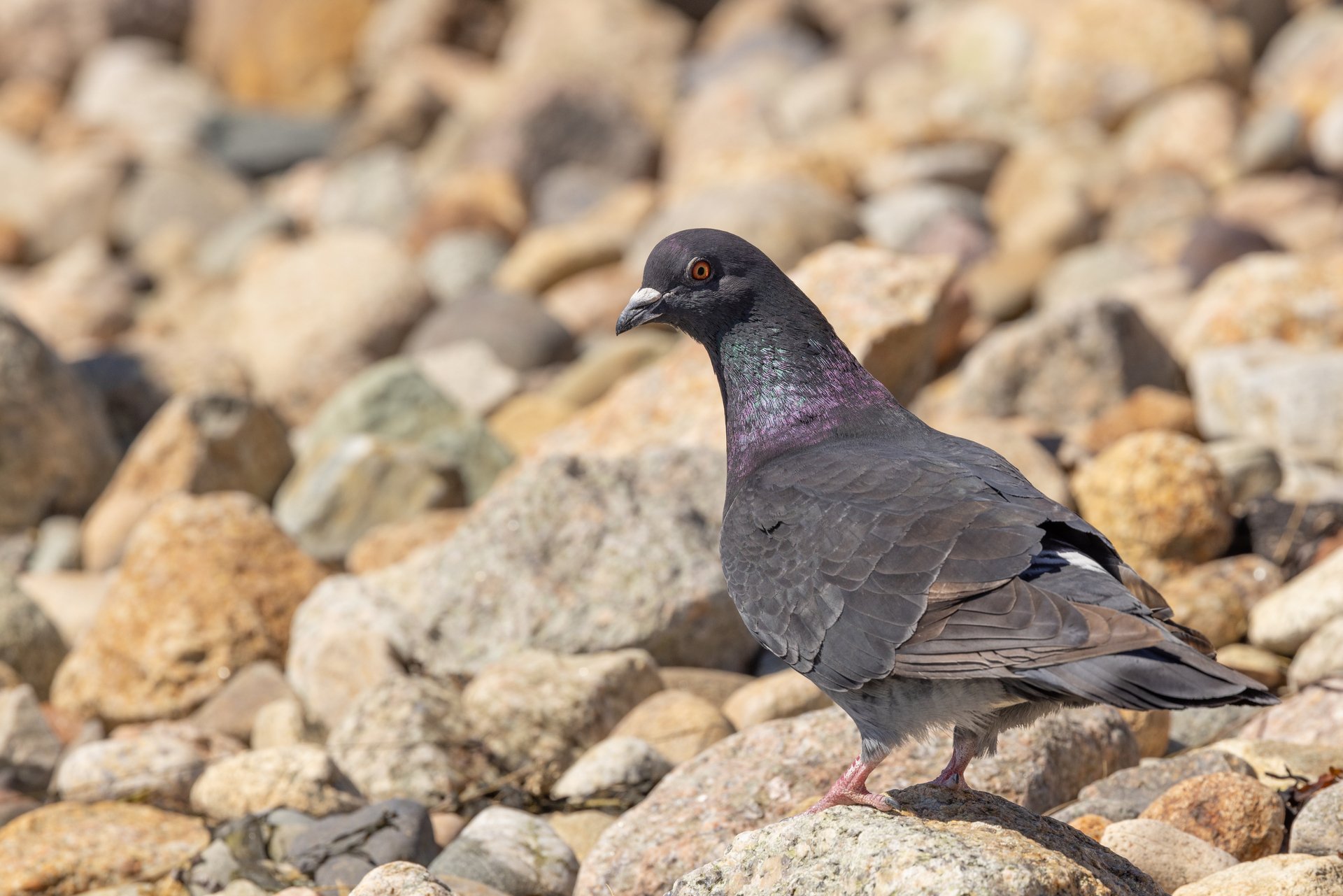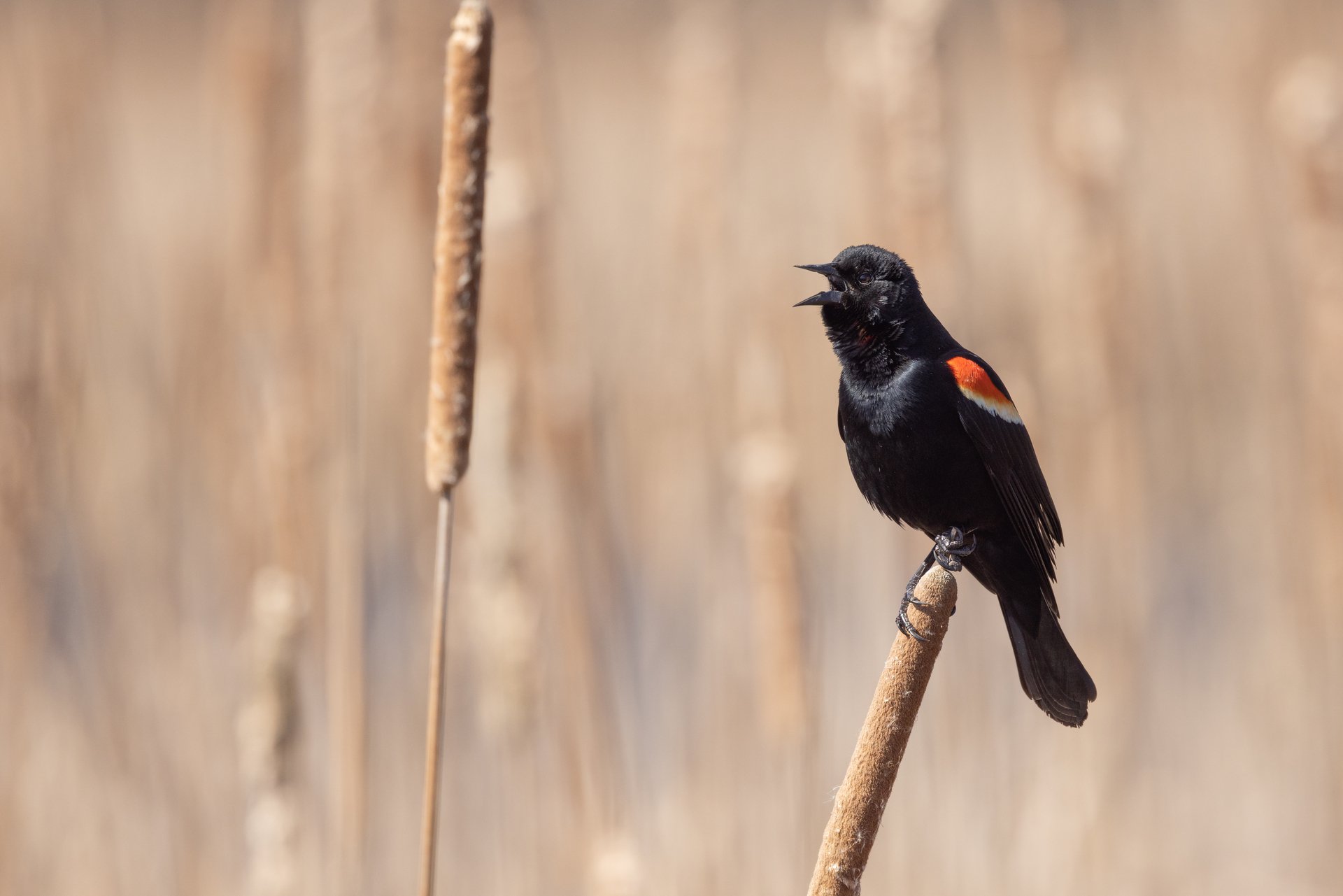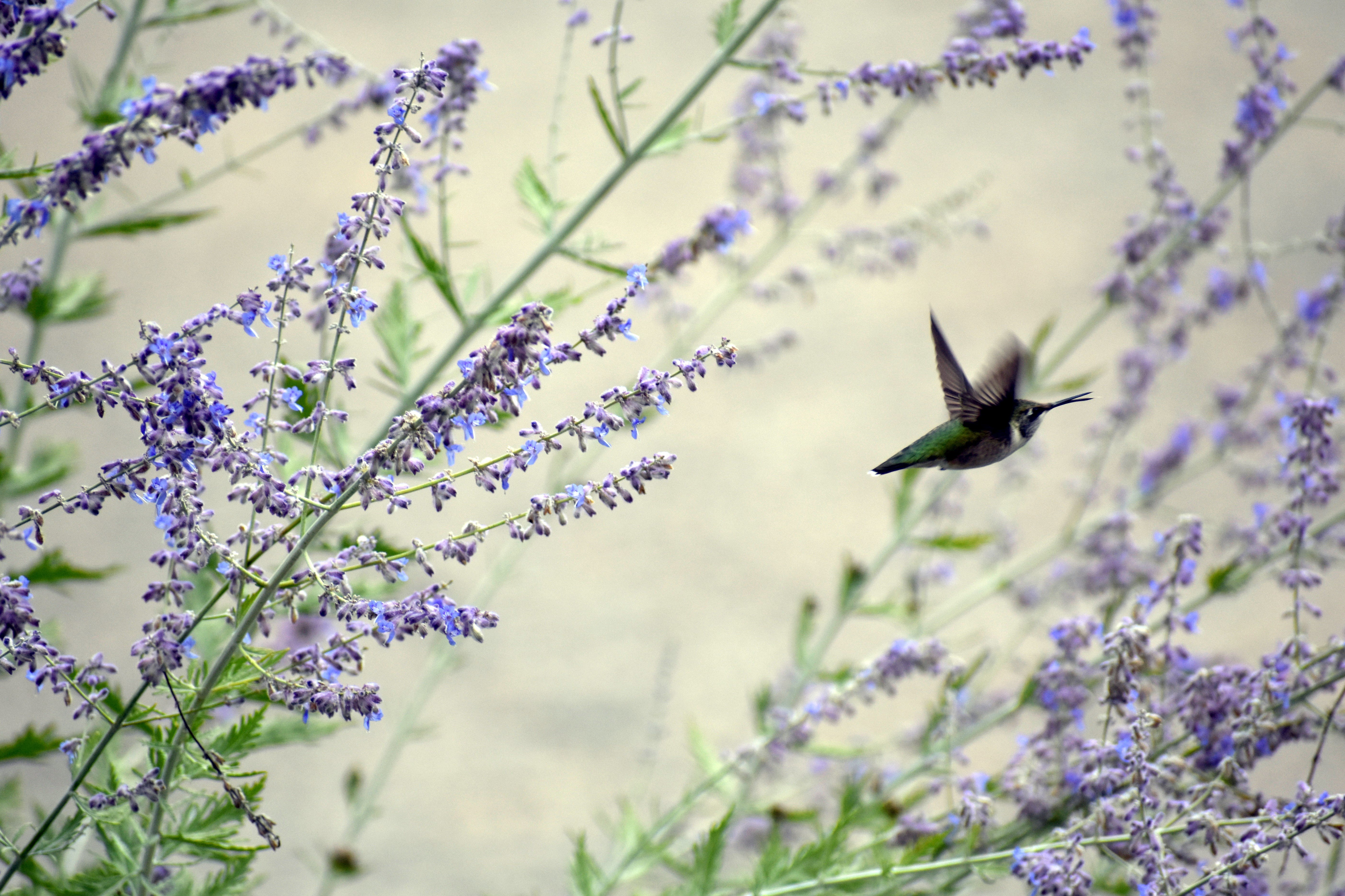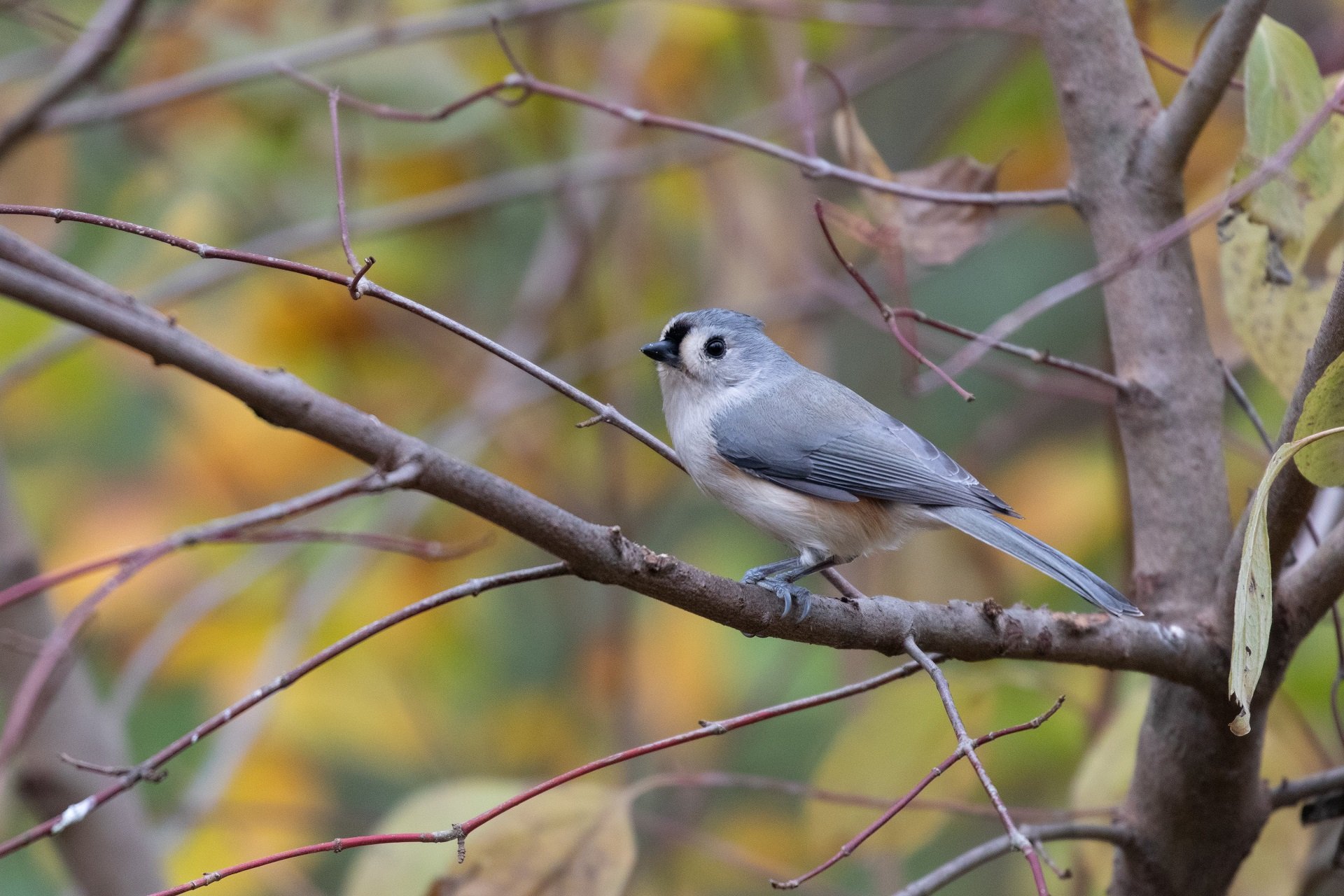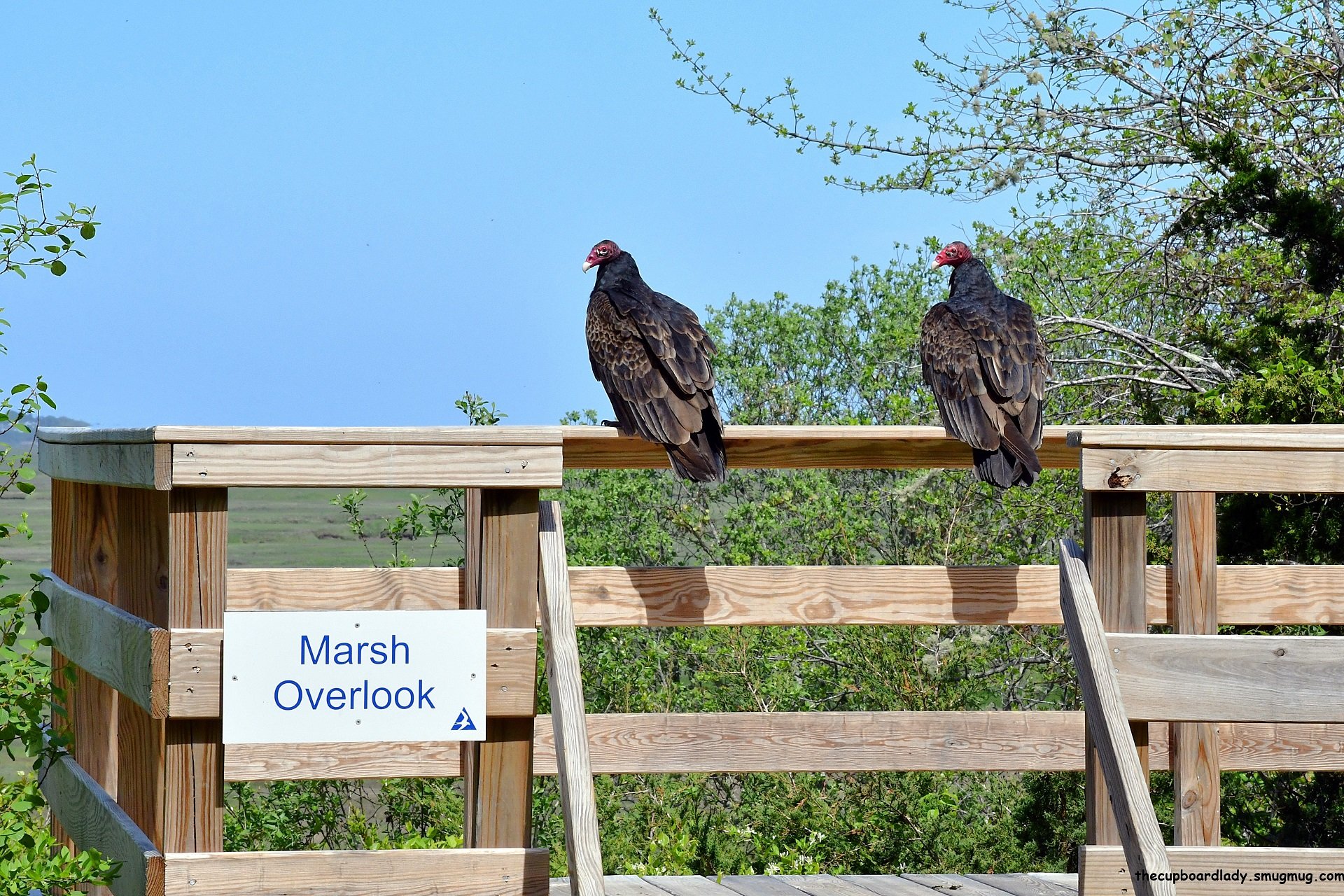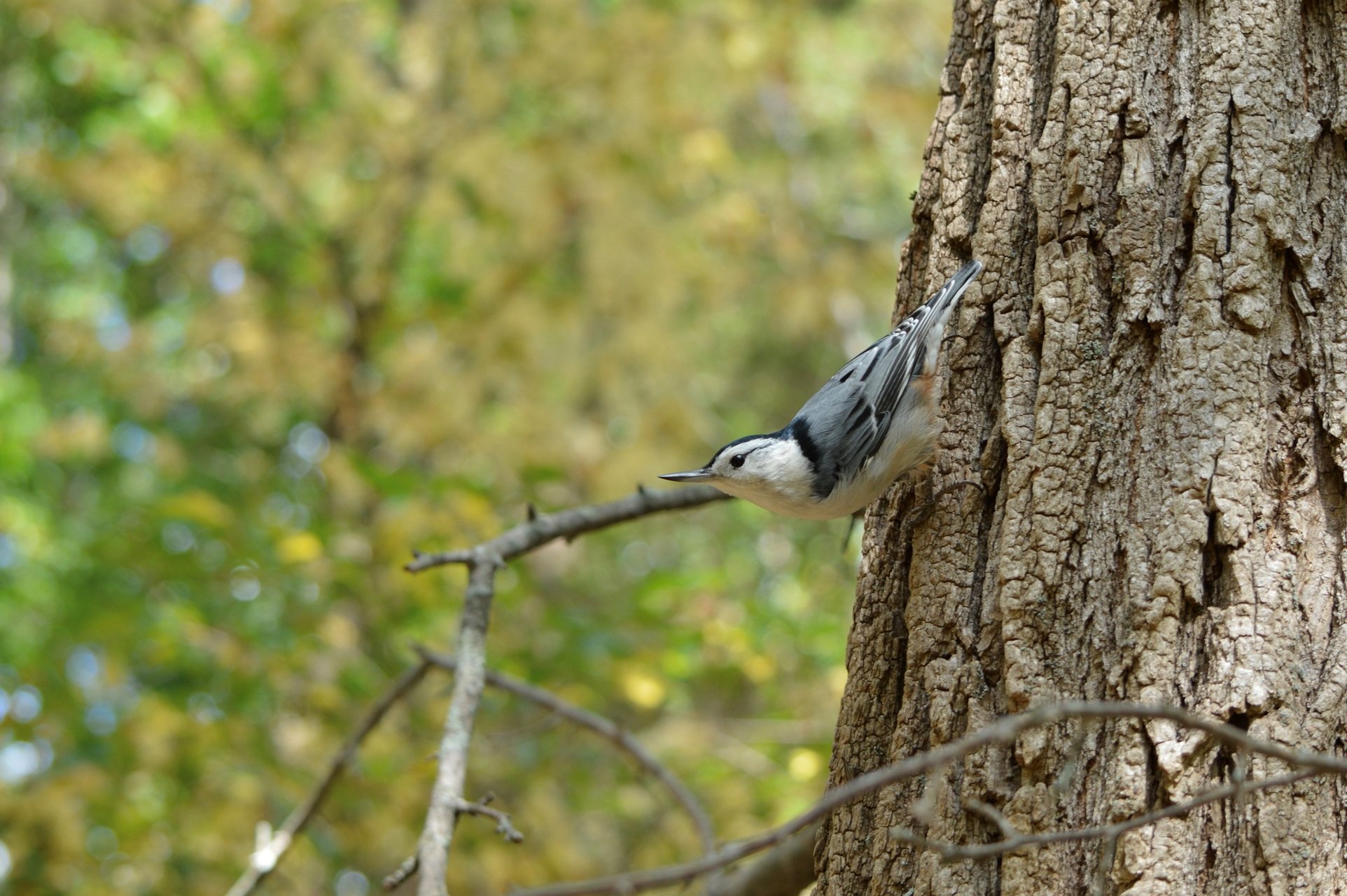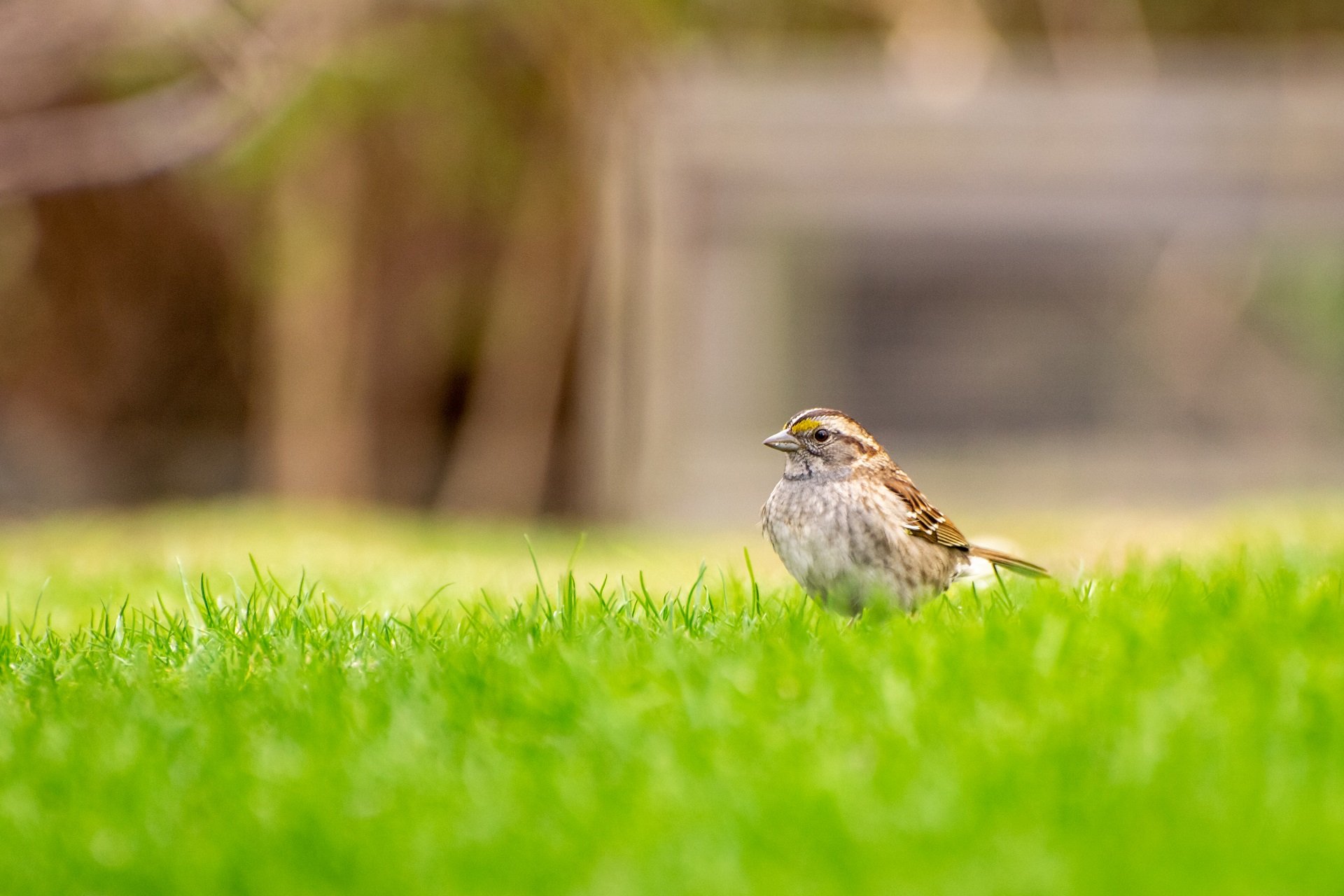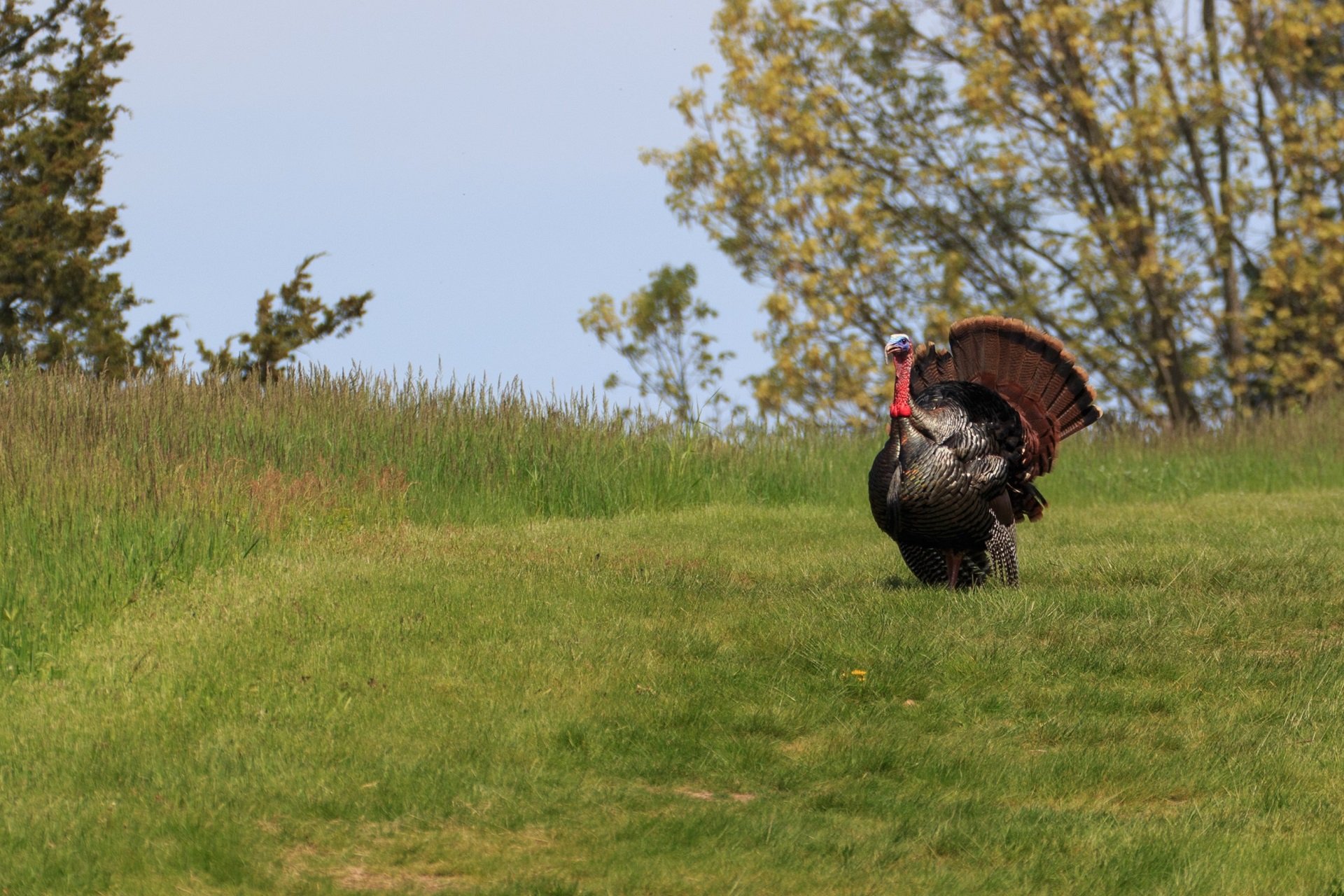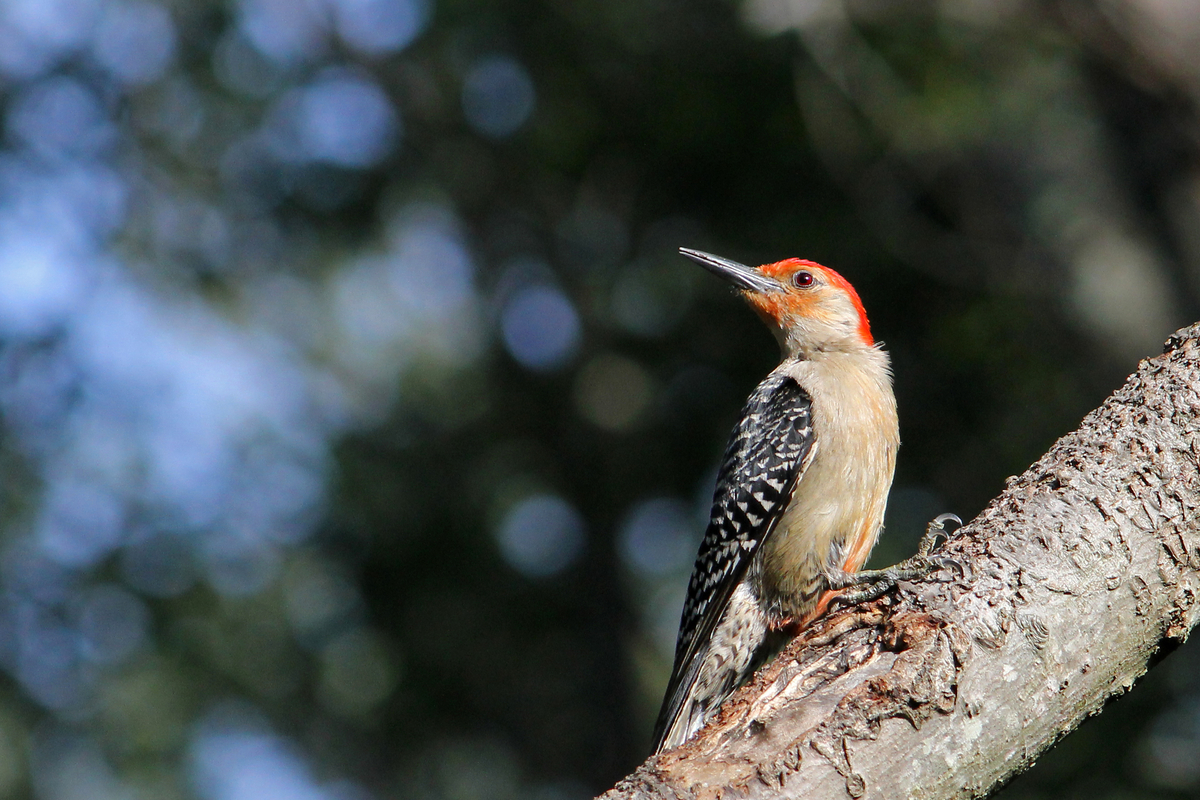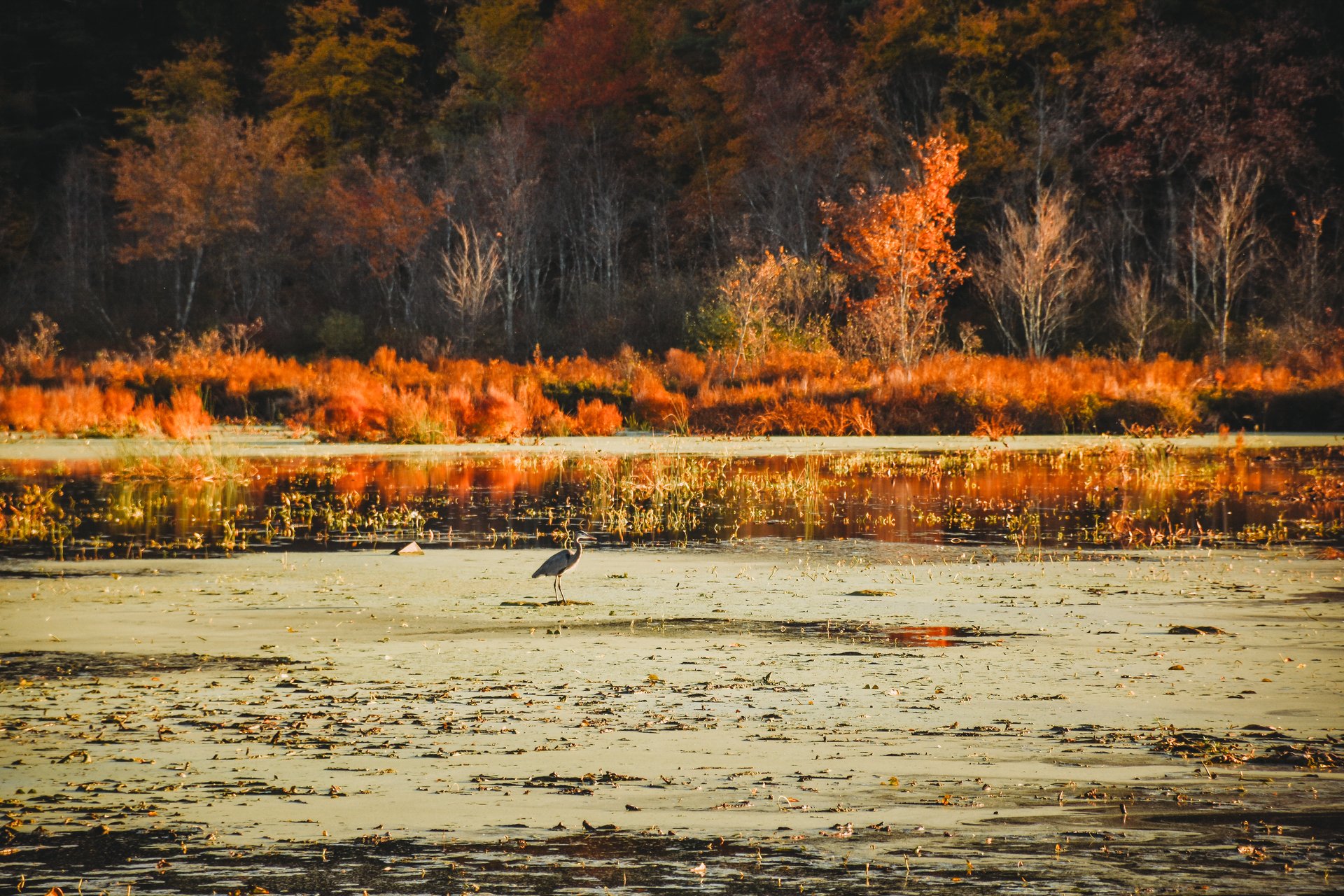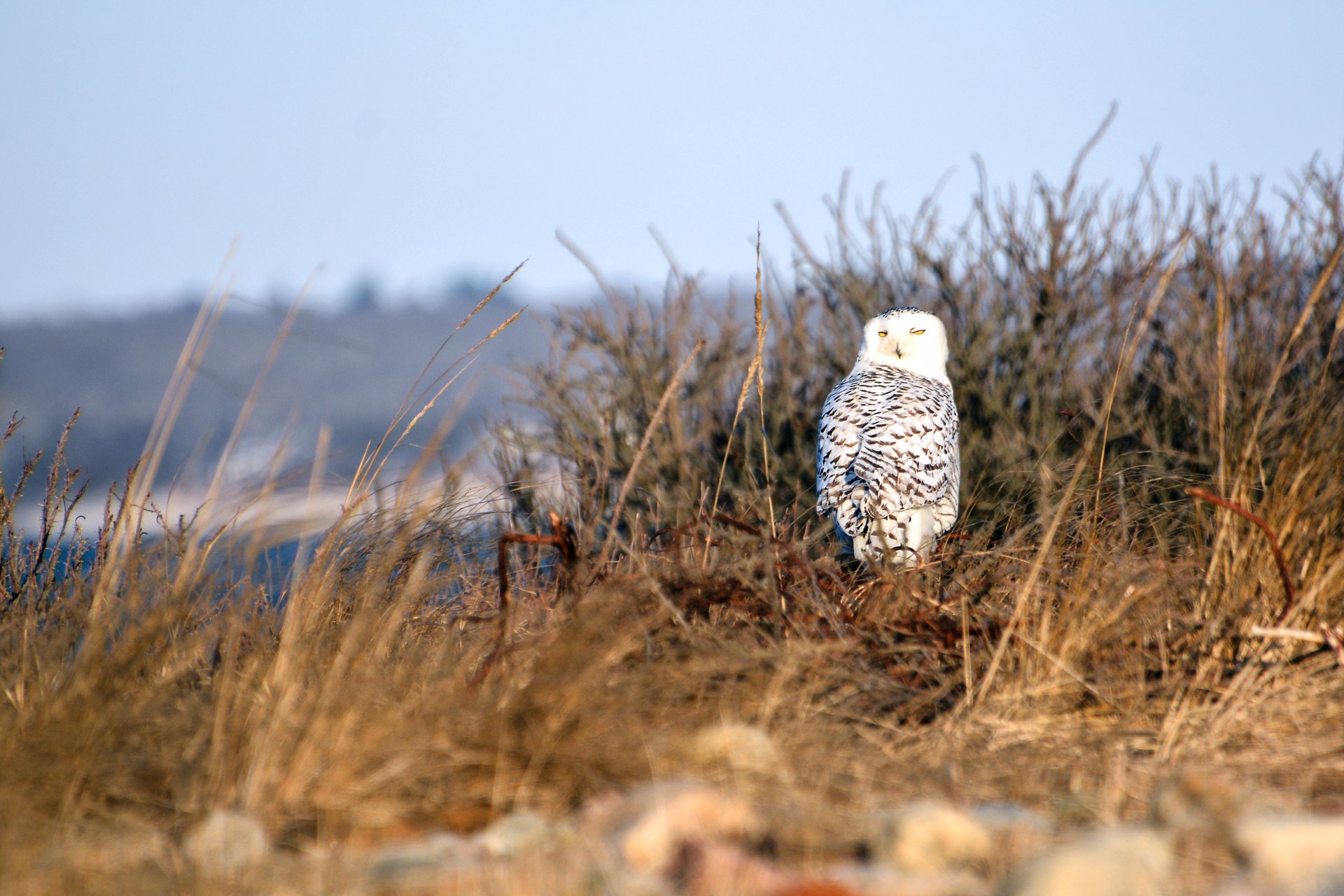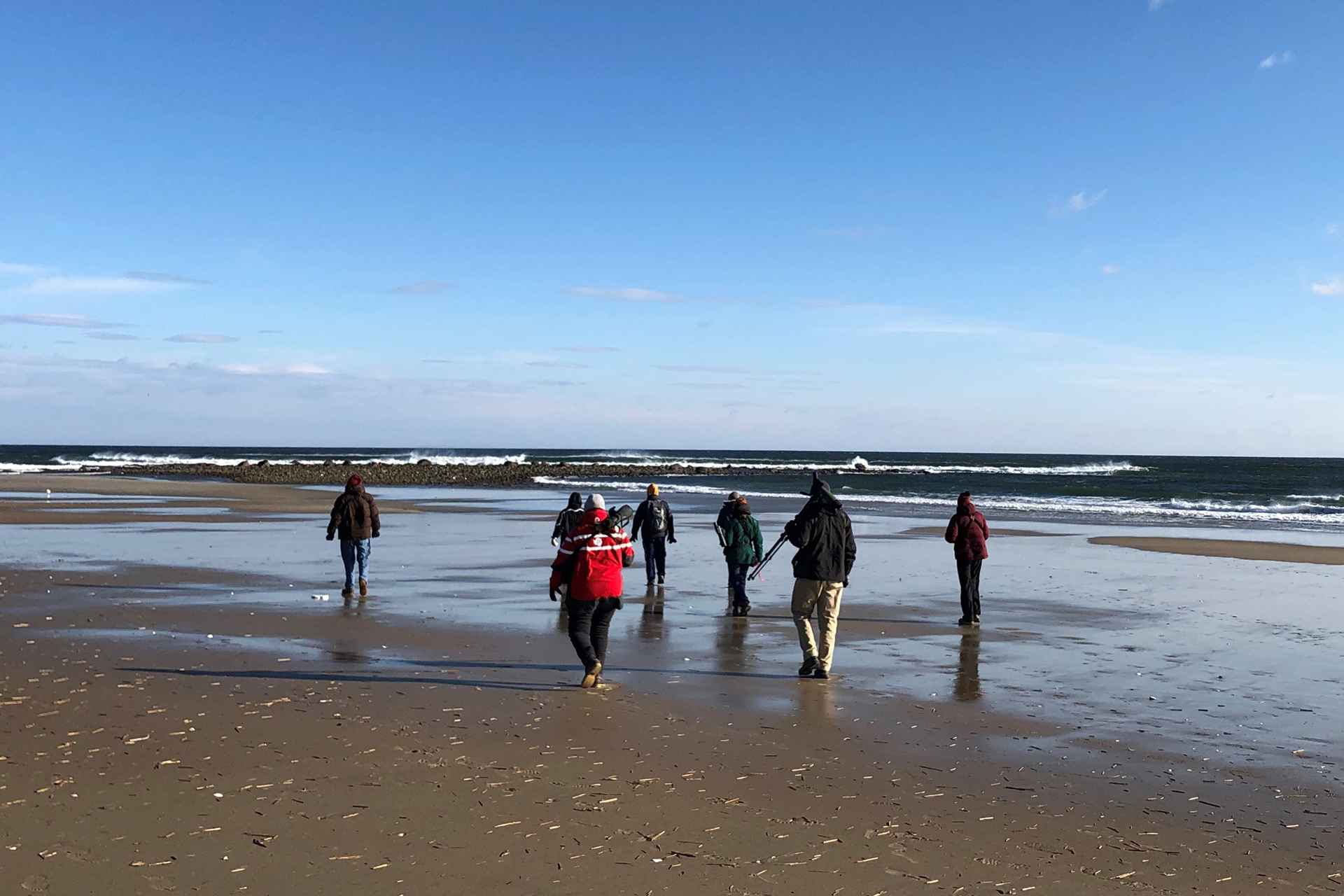Birds in Massachusetts
Massachusetts hosts more than 300 different species of birds each year. From the rarely encountered Northern Goshawk to the charmingly common Black-capped Chickadee, the birds of the Commonwealth come in all shapes and sizes.
Familiarize yourself with some of the most common birds you may encounter so that you're ready to tackle whatever flies your way. Check out our frequently asked questions page to get answers on common phenomena and interactions. Then, download Mass Audubon's official Bird Checklist to keep track of your sightings and find a bird walk near you.
Common Bird Species in Massachusetts
American Goldfinches
The American Goldfinch’s distinctive sunshine-yellow plumage fades in winter to a palette of gray, brown, and buff.
American Kestrels
Learn all about American Kestrels, North America’s smallest falcons.
American Robins
Seen regularly in city parks, suburban lawns, and forest clearings, the American robin may be the most familiar bird in North America.
Tree Sparrows
These fairly large sparrows breed in the high tundra, but during winter they flock to Massachusetts weedy fields and backyard feeders.
American Woodcocks
Also known as Timberdoodles, American Woodcocks can be found in the spring as they come to breed in New England.
Bald Eagles
Once threatened by the toxic pesticide DDT, Bald Eagle populations have rebounded in the Commonwealth and can now be found near coasts, large rivers, and lakes.
Baltimore & Orchard Orioles
Orioles are colorful, vocal members of the blackbird family. In Massachusetts they are represented by two species—the Baltimore Oriole and the Orchard Oriole.
Birds of Prey
Birds of prey, also known as raptors, are a group of carnivorous birds, which means they feed primarily on meat.
Black-capped Chickadees
The Massachusetts state bird, chickadees can be found in all corners of the Commonwealth wherever there are at least a few trees.
Blue Jays
Few bird species in Massachusetts can match the Blue Jay’s vibrant plumage, but these clever and aggressive members of the crow family are common enough that many take them for granted.
Brown-headed Cowbirds
Cowbirds are members of the blackbird family. This species is a nest parasite—females lay their eggs in the nests of other species.
Canada Geese
The Canada Goose is the only species of goose that breeds in Massachusetts.
Carolina Wrens
Although once limited to the southeastern US, Carolina Wrens have spread north all the way to New England.
Cedar Waxwings
Cedar Waxwings have remarkably smooth and silky-looking brown plumage.
Chimney Swifts
The chimney swift eats, drinks, collects nesting material, and possibly even copulates in flight.
Chipping Sparrows
A small sparrow, Chipping Sparrows make themselves heard in spring and summer with a ringing song that belies their size.
Common Grackles
Grackle feathers shine with iridescence and their piercing voices creak and whine across suburban Massachusetts.
Crows
Crows have long suffered under the reputation of being "bad," yet these vocal black birds are among the most intelligent.
Dark-eyed Juncos
Often linked to winter, juncos can be found in the Commonwealth year-round, and often breed in our conifer forests.
Eastern Bluebirds
Bringers of happiness in all seasons, eastern bluebirds are small members of the thrush family that inhabit fields and clearings throughout Massachusetts.
Eastern Phoebes
Eastern phoebes are active foragers that often choose to nest on or near human buildings.
European Starlings
As the name suggests, European Starlings are introduced birds from across the sea.
Great Blue Herons
Once a rare sight in the northeast US, Great Blue Herons have staged a staggering comeback.
Gulls
Despite its common usage, the term “seagull” is a misnomer. There is no gull species known as a seagull.
Mallards
There are 16 duck species that breed in Massachusetts. The mallard is the most commonly seen or encountered.
Mourning Doves
Named for the mournful sound of their owl-like cooing, mourning doves are plump-bodied brown birds with small heads and long tails.
Northern Cardinals
Cardinals are year-round residents in Massachusetts. In the winter, they use their beaks to crack open seeds and sugary fruits to survive; come spring, their cheerful caroling can be heard in almost every neighborhood and farm.
Northern Mockingbirds
These accomplished mimics are year-round residents of Massachusetts.
Ospreys
Also known as fish hawks, Ospreys are raptors that survive on a diet of 99% fish.
Owls
Although owls are among the best-known birds in folklore and literature, they remain something of a mystery to most people.
Pigeons
Common Pigeons have been domesticated for thousands of years, and have served as message carriers, research subjects, and more.
Red-winged Blackbirds
The most common and widespread members of the blackbird family in Massachusetts are the Red-winged Blackbirds.
Ruby-throated Hummingbirds
Massachusetts' smallest breeding bird is also one of our most beautiful.
Tufted Titmice
Tufted Titmice are bold as brass, harassing intruders in their territory with their harsh scold calls.
Turkey Vultures
Although soaring Turkey Vultures are now a regular sight in Massachusetts, they were rare until recent decades.
White-breasted Nuthatches
Many Massachusetts birds cling and crawl on the trunks of trees, but only the curious little nuthatches descend trees head-first.
White-throated Sparrows
Every spring, the northern woods are filled with the songs of White-throated Sparrows.
Wild Turkeys
Once all but extinct from Massachusetts, this iconic bird can be found just about anywhere—woods, suburbs, even cities.
Woodpeckers
Six woodpeckers are commonly found in Massachusetts.
Frequently Asked Questions
Ever wonder what to do if you find a baby bird? Or why no birds are showing up at your feeder? How about why you shouldn't feed ducks?
Protecting Birds
We study birdlife so that we can protect them throughout the Commonwealth and beyond.
Latest News
See MoreExplore All the Ways to Bird in Metro South This Winter
Keep ReadingSnowy Owls Are Back in Massachusetts—Here’s What You Need to Know
Keep ReadingStay Connected
Don't miss a beat on all the ways you can get outdoors, celebrate nature, and get involved.

